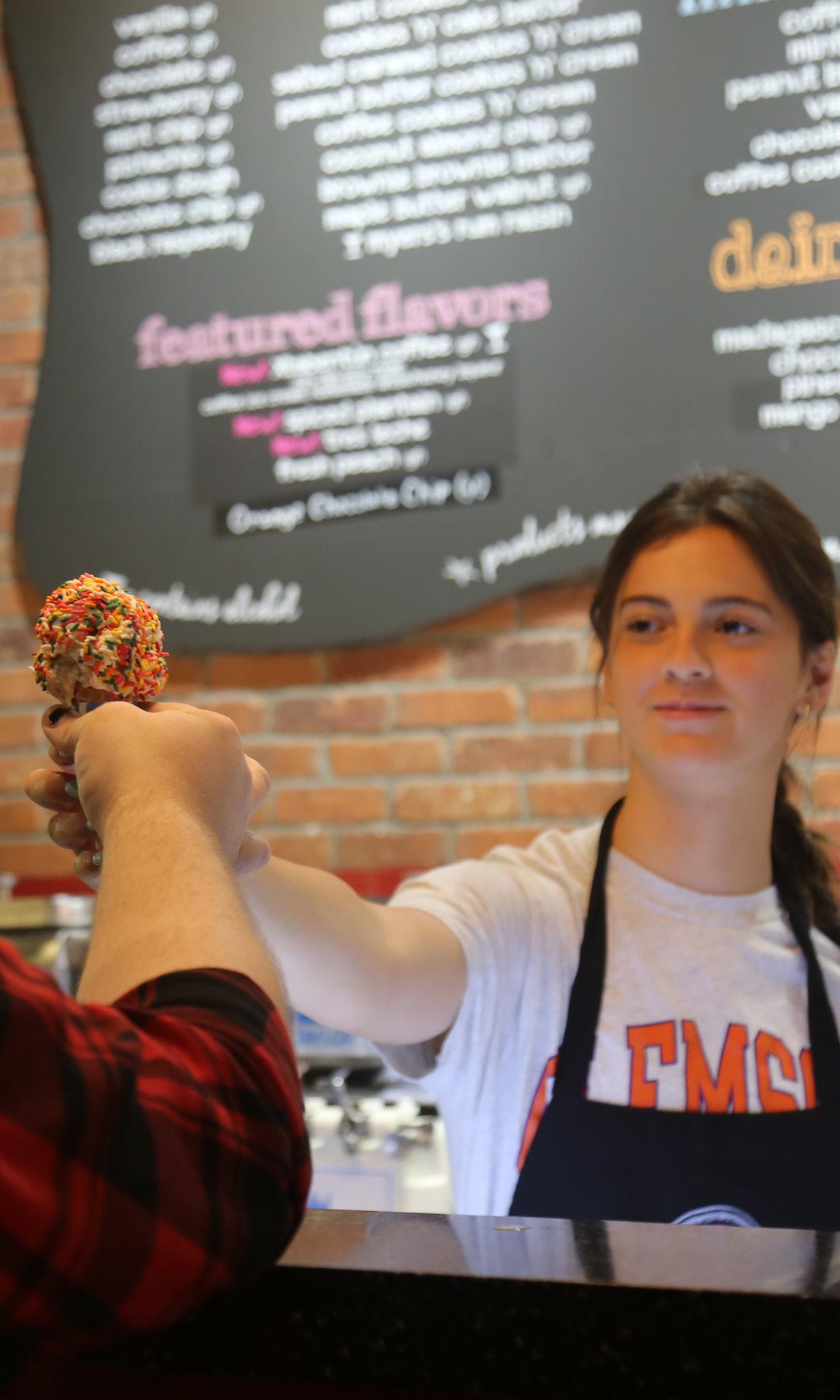




By James Garrett & Abby Miller

It’s rewarding to see the rst public space of this transformative development come to life.
Jeff Fishbone Executive Member of Cranshaw Construction
Northland and our city councilors worked together to reimagine this site.
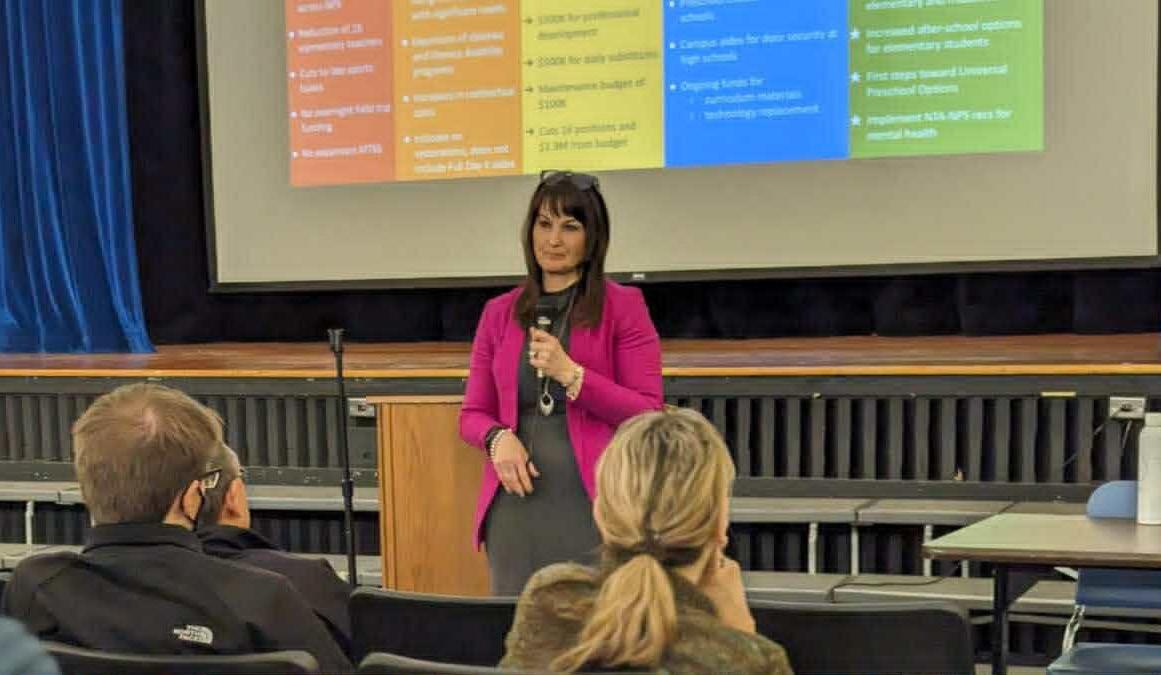
On June 30, the Department of Education (DOE) alerted schools across the country that it freeze roughly $6 billion of “Title” grant funding, including funds for health and technology, English language learning support and professional development. In response, Massachusetts and 22 other states sued the DOE, and the majority of the funds have since been released.

After over ve years of planning, a new summer splash pad — constructed as part of real estate company Northland’s ongoing Needham Street development — opened on July 16. e splash pad, located at 1265 Chestnut Street, is open from 10 a.m. to 8 p.m. It features seating and structures for children to play on, as well as di erent water settings. e splash pad itself can be activated via sensor pole, and it uses recycled, treated water.

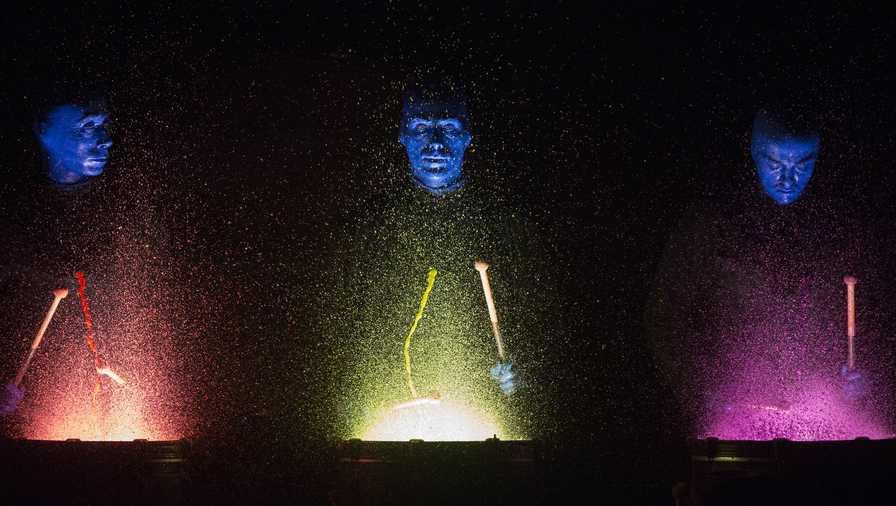
The Blue Man Group ended their 30 year run in Boston on July 6. The show opened in Boston in 1995 and featured three silent blue performers. The performances included music, painting and dancing, and attracted tourists and local residents. The Blue Man Group performances also ended in Chicago and New York City last year, but performances in Las Vegas, Orlando and international locations are still ongoing.
Our schools rely on this money to help students meet our education standards, promote e ective classroom instruction, provide afterschool programming ... and so much more.
As someone who [was an] English LanguageLearner (ELL), I bene ted a lot from it because immigrants don’t always get the most support in America.
Bomi Woo Class of '27

It’s certainly no small thing how long this show has been running — it’s really not typical in the industry.
It’s incredible that 30 years later, we’ve done over 13,000 shows. It’s been an amazing journey.
By Abby Miller
On Nov. 4, Newton residents will vote for candidates to ll the School Committee positions for the eight wards in Newton.
is year, there are 11 rst-time candidates.
Multiple new candidates are running to replace School Committee members who cannot run again due to term limits, while others are replacing members who decided not to run for re-election.
Ben Schlesinger from Ward 5 is one of the rst-time candidates running to replace Emily Prenner, who decided not to seek another term.
If elected, Schlesinger said that he is looking forward to improving Newton Public Schools (NPS).
“I’m really excited about Superintendent Nolin’s vision to build on the foundation we have in NPS and innovate it to become a truly world-class school system that puts students at the center of our making,” he said.
Victor Lee, a rst-time candidate in Ward 8, is running to ll the position left by Barry Greenstein, who also decided not to seek re-election.
getting to further his relationship with Newton residents.
walking around and listening to everybody’s opinions on the school system,” he said.“Some people have very, very pointed opinions.”
date running unopposed to replace Apning Shen, who cannot run again because of term restrictions.
3, he said that he is excited about promoting collaboration among NPS.
creativity [is important to me],” he said. “Dr.
Nolin says that we should be a school district, not a district of schools.”
Each of the rst-time candidates said that they have speci c priorities and goals they hope to achieve.
Christie Lee Gibson, who is running for the Ward 1 seat, said that she is particularly focused on the literacy curriculum.
“ e literacy curriculum is really important,” she said. “[I want to make sure] as many kids as possible are moving into the readingto-learn phase in third and fourth grade. at’s centered on my experience as an elementary school parent.”
NPS parent and Newton resident Janna Greenberg said that she also has priorities, which she is hoping the elected candidates focus on.
“I would like more focus on managing class sizes and embracing academic standards that work for the kids,” she said.
Seven other rst-time candidates have been endorsed as of early August.
On July 28, mayoral candidate Marc Laredo published his full list of School Com-
running unopposed in a special election.
As of Aug. 5, the Newton Teachers Association (NTA) has not endorsed any candidates.
Ryan Normandin, the union’s Second Release O cer and a former NPS teacher, said that he believes the NTA is looking for candidates who are involved.
“We’re looking for people who understand schools,” he said.“I think a lot of the issues in the past partially stem from the fact that a lot of [School Committee members] do not understand what goes on in school buildings.”
Normandin said that his biggest issue for the elected candidates is the usage of AI in schools.
“I think the district could have a place in trying to further examine what the standards around academic integrity are,” he said. “[We] need to make sure we’re engaging with this new technology in a responsible way.”
ere are many viewpoints on pressing issues such as AI, and Greenberg said that her ideal candidate is one who is able to think outside their own perspective.
“A good candidate takes into account
Having this balance of autonomy and creativity [is important to me] ... Dr. Nolin says that we should be a school district, not a district of schools.
Jason Bhardwaj Ward 3 Candidate
and di erent neighborhoods in our city, and it’s been incredibly enriching and valuable to learn about all those things,” he said.
While talking to people in Newton, Gibson said that she speci cally noticed the lack of general knowledge regarding the district's budget system.
“ ere are so many parents who have a limited bandwidth to learn about how the budgeting process works, and they’re upset about the cuts and how the schools’ budgets are going,” she said. “I really wanted to try towill be busy working on their campaigns and advocating
Schlesinger said that henities for students in NPS ifdence that the schools are creating the opportunity for every child to thrive to their fullest
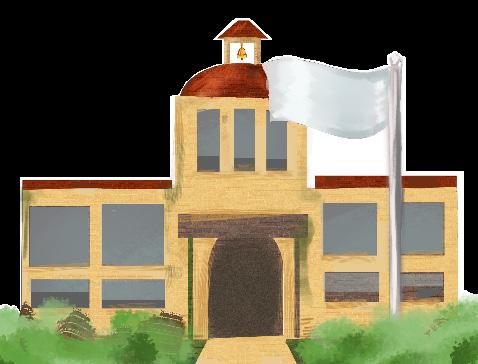
Seyoon Byun & James Garrett News Editors
On June 23, 2025, Newton Public Schools (NPS) announced the reinstatement of vaccination requirements.
With rising cases of chicken pox, NPS, along with Newton Health and Human Services and the City of Newton Nursing Division, reviewed the immunization status of NPS attendees.
O cials discovered that students were able to matriculate during COVID-19 without proper, state-manded vaccinations, and that 182 students who joined during that time remain unvaccinated.
Beatrice Marson, an NPS parent, said that despite her son’s vaccinations, she feels uneasy about the presence of unvaccinated students in the school community.
“It’s de nitely a concern. Even though my son’s vaccinated, there’s still a risk, especially with chicken pox, which is highly contagious,” she said.“I worry about him bringing something home and exposing other family members, especially the older ones.”
Jon Snider, a primary health care doctor whose kids attended South, said that he noticed many parents are postponing vaccines, which not only puts individual children at risk but also weakens the community's protection against diseases.
“ ere’s a good proportion of my patients believing that it’s too many vaccines too early, so they like to space them out or delay the vaccinations, which is very dangerous,” he said.
Infectious disease doctor Harry Schrag-
er said that high vaccination coverage protects the entire community, especially those who are unable to be vaccinated.
“If 95 percent of the population who can be vaccinated are vaccinated, transmission basically drops to zero,” he said.“ decision to protect themselves spills over to protect those who cannot be vaccinated.”
Marson said that skepticism rooted in some cultural and religious values, as well as concerns about adverse outcomes, continues to fuel hesitation among parents despite scien ti c assurances.
“Certain people are very skeptical about how effective the vaccines are.
ey just don’t trust them and have a lot of concerns about side ef fects, even if the vaccines are ap proved,” she said.
However, Schrager said that extensive research and continuous testing of vaccines con rm their safety and high e ectiveness across di erent populations.
“Each vaccine goes through rigorous testing to phase three and then post-marketing surveillance reporting of side ef

their work to.”
Some have expressed concern about vaccine availability for students. Accordingly, families without access to medical care will be able to receive vaccinations from school nurses.
Marson said that she was reassured by the district’s decision to reinstate vaccination requirements.
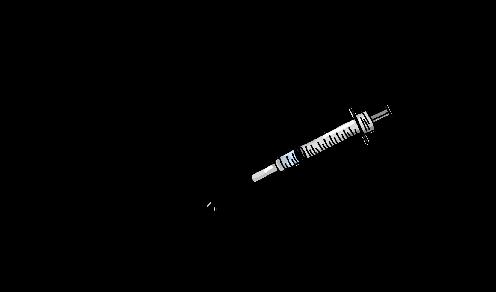
One Newton par ent, who requested to remain anonymous, said that their decision not to vaccinate stems from their religious beliefs.

“In my faith, we’re taught to be cautious about what we put into our bodies, and to preserve what God gave us. For me, faith and tradition feel safer than relying on vaccines.”
ing trust in vaccines depends on individual engagement with scienti c information and trusting the expertise of health professionals.
“Doing your research and listening to explanations from doctors and scientists can help develop trust in the safety of vaccines,”
“When you’re on a plane, you trust the pilot not to crash because they know how the plane works and how to y it. I think it’s reasonable to trust that experts want what’s best for society, as that’s basically what they dedicate
“I thought it made sense. I was kind of surprised it wasn’t already in place,” she said. “With kids getting sick, the school should be proactive. I was honestly relieved that they were recognizing the problem and doing something.”
Especially for those who are new to the United States, Marson said that the district must recognize its role as a support system for families who may struggle to nd resources.
“It is up to the school to take care of our kids because many families aren’t familiar with the resources around us, especially immigrant families new to the country,” she said. “ ey don’t know how or where to get this help.”
Suzanne Yun, a North parent, said that fostering empathy is crucial for addressing vaccine concerns.
“First, we have to stop shaming them and create more spaces for dialogue,” she said. “If you want to change someone’s mind, you have to understand where they’re coming from and I don’t think enough people are doing that right now.”
Yun said that despite di erences in opinion, most parents have the best intentions for their children’s well-being.
“ ere are di erent voices in these discussions,” she said.“Everyone is doing what they genuinely think is best for their child.”
it’s short-term disruption for long-term excitement,” she said.
investing in sustainable … solutions to reduce emissions,” he said.
On May 19, Mayor Ruthanne Fuller hosted a ceremony to mark the start of construction of a new Countryside Elementary School, the oldest operating Newton Public School (NPS) building.
More than 70 years after opening, Countryside is slated to be replaced by a new, sustainable facility that will better serve the community, students, sta and the planet.
e new school is being built on Countryside’s current eld.
While construction is ongoing, students will continue their education in the current building.
Countryside Principal Beth Herlihy, who has been closely involved with the process, said that the rebuild will be greatly bene cial in the future.
“Although it’s inconvenient right now,
e design process has focused not just on new facilities, but also on honoring community voices.
Herlihy said that the architects worked directly with teachers to imagine what the future years of learning should look like.
“ e architects spent time with our faculty, really thinking about our hopes and dreams for the building,” she said. “It’s been a collaborative opportunity for all of us to imagine a school that’s truly the hallmark of the community for years to come.”
Countryside’s new design includes geothermal heating, and a renewable energy source that drastically cuts carbon emissions in the atmosphere.
Senior Akshay Sayana-Dudani said that he appreciates the district’s attempt to become more environmentally friendly.
“It's an incredible rst step for NPS to be

Marcia Cooper, president emerita of Green Newton, said that Countryside was the right choice for this major investment and change.
“ e reason is that they were starting from scratch,” she said. “It’s a huge amount of progress.”
Cooper also said that Newton’s leadership in sustainability has a ripple e ect across neighboring towns.
“What happens in Newton is very in uential for other communities,” she said.
Some alumni have said that the rebuild is more bittersweet for them.
Senior at Boston University Academy Lizzie Elliot, who previously attended Countryside Elemenrary, associates the old building with school friendships, festivals and outdoor fun.
“We always had this thing called Spring Fest … and all the kids would come, everybody got really excited,” she said.
Elliot said that because many of her memories are connected to the old building, she feels a sense of melancholy regarding the rebuilding.
“It’s sad [to see the old school go] ... but I’m excited because it’s past time we started,” she said.
Individuals involved in the construction said that the creation of the new building will bring new traditions to the community.
While old routines may shift during the project, Herlihy said the focus remains on preserving the spirit of the school.
“We want to make sure students don’t miss out on traditions,” she said. “ ey might just look a little di erent during construction.”
Herlihy said that plans are underway to
It's
been a really collaborative opportunity for all of us as a faculty to dream and hope for a building that's going to be the future and hallmark of the community.
Beth Herlihy Countryside Principal
ensure that the new school is more than just a place for learning.
“We’re working with artist David Fichter to create a mural for the new school,” she said. e project has not gone unnoticed by neighbors.
David Oliver, who has lived near Countryside for many years, said that the disruption is a modest inconvenience.
“ ere’s more noise ... starting promptly at seven o'clock in the morning,” he said.
His wife Christina Oliver said that Newton’s public building department has bent over backward to keep residents informed of any chances that are underway.
“Most people are excited,” she said.“ ey feel like it really needs to happen.”
Looking beyond construction, Herlihy said that the long-term vision for the project is important.
“It's been a really collaborative opportunity for all of us as a faculty to dream and hope for a building that's going to be the future and hallmark of the community for years to come,” she said.
Photos by Andrew Feinberg
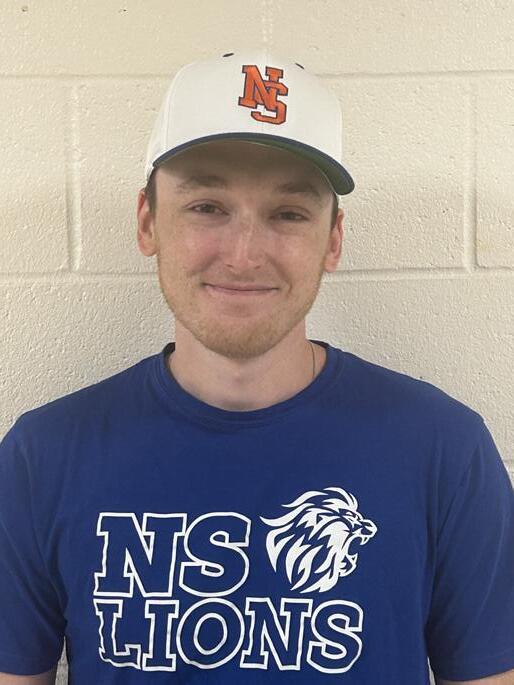
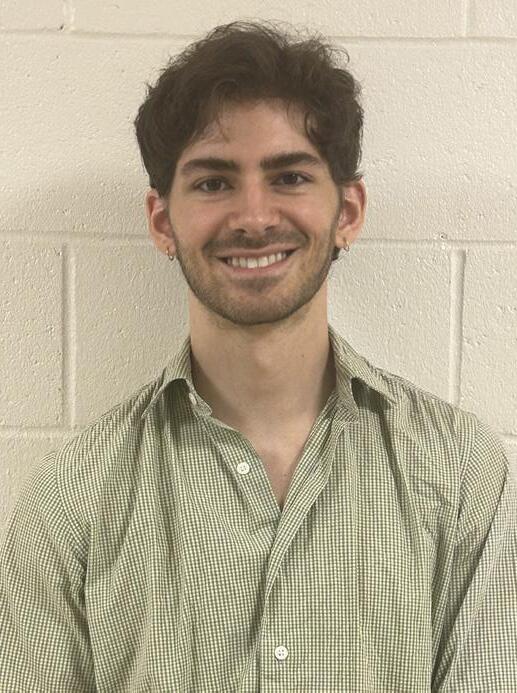
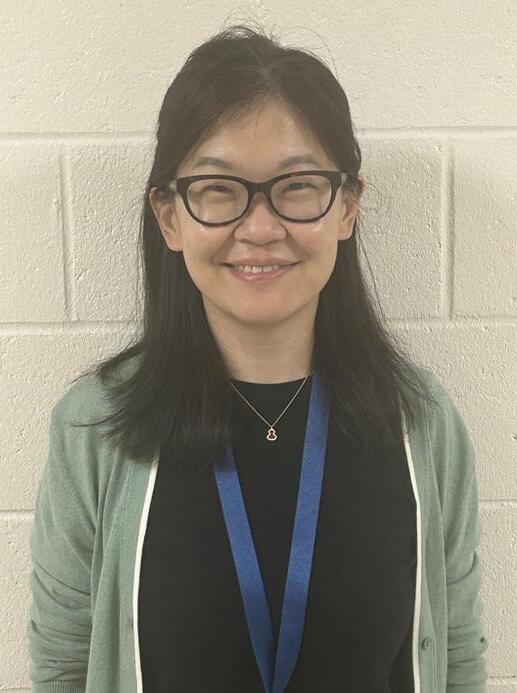
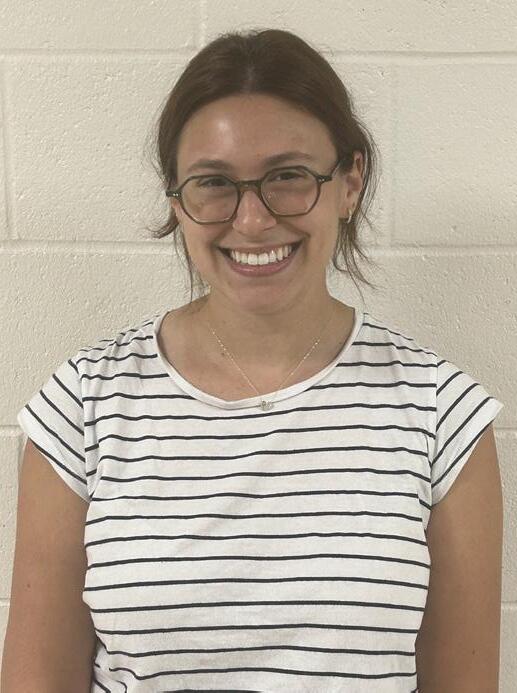
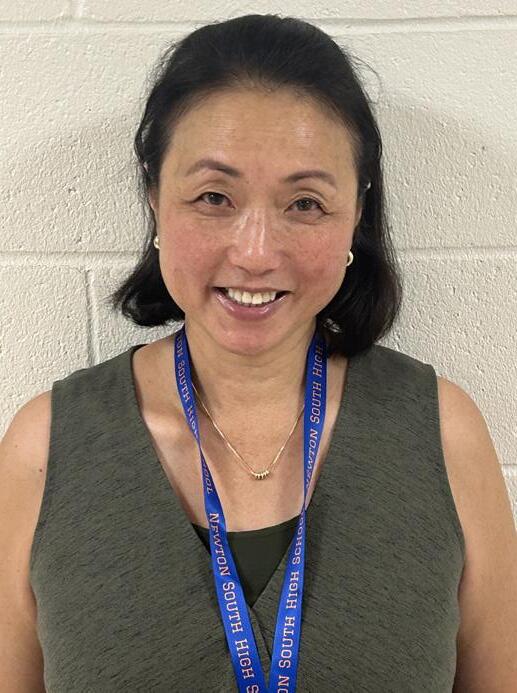
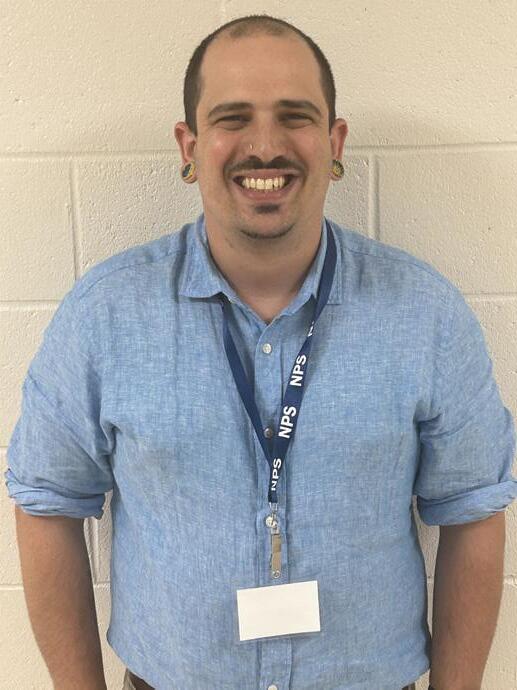
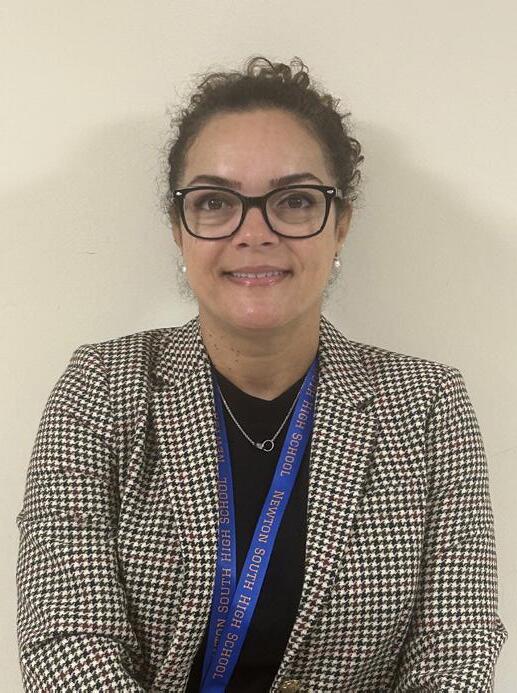
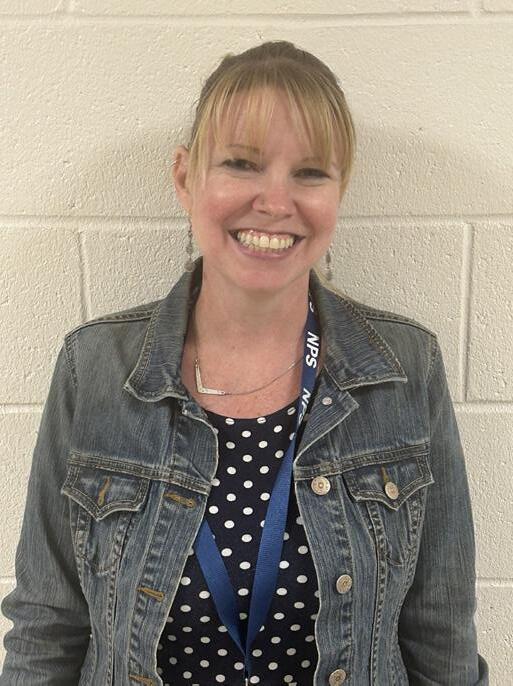
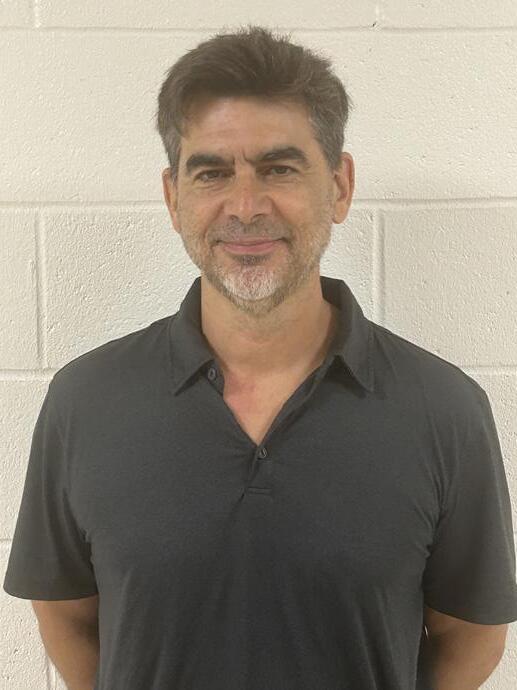
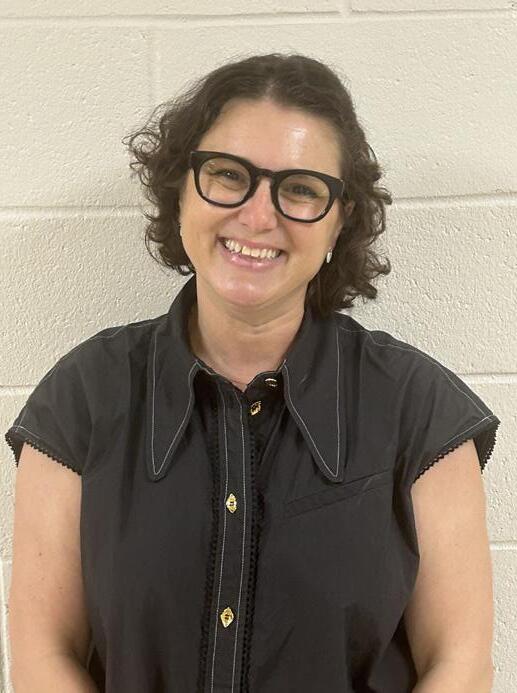
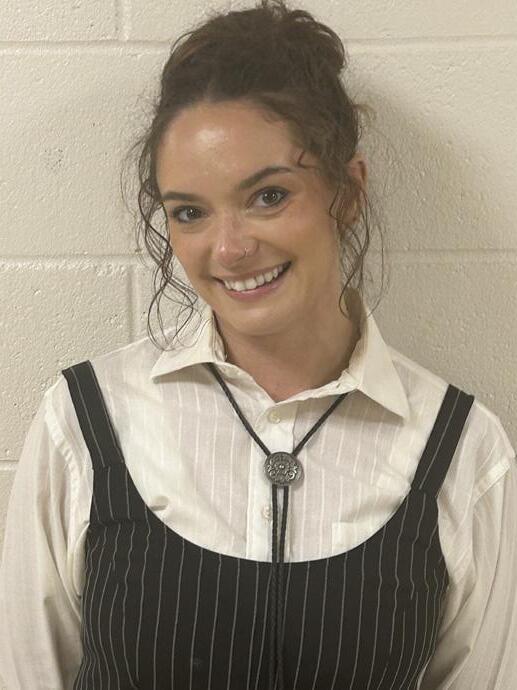
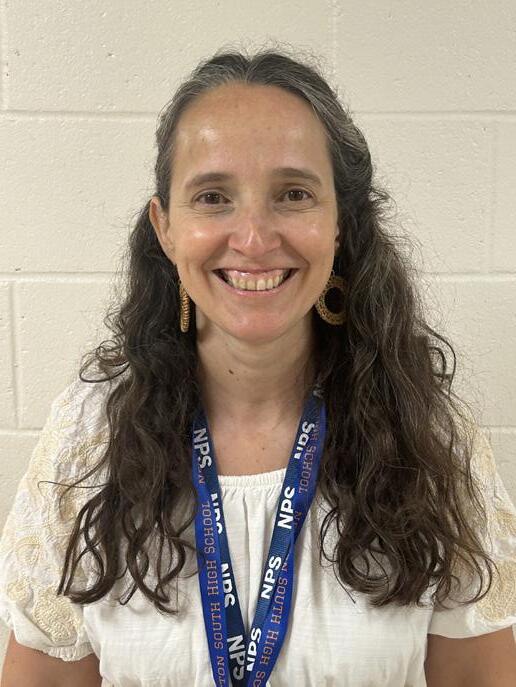
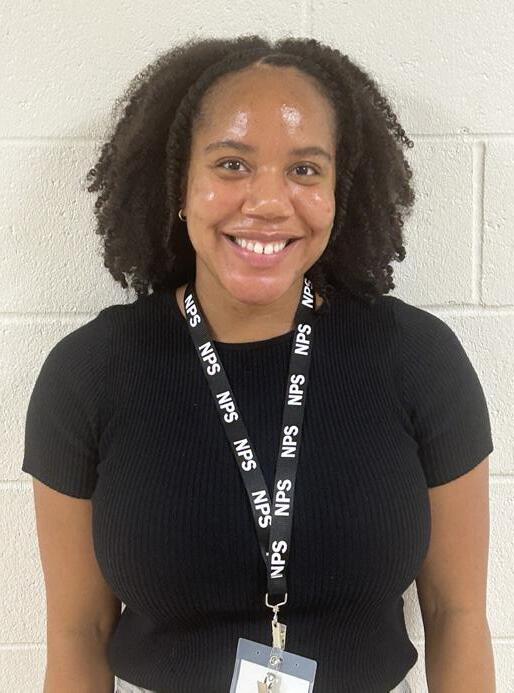
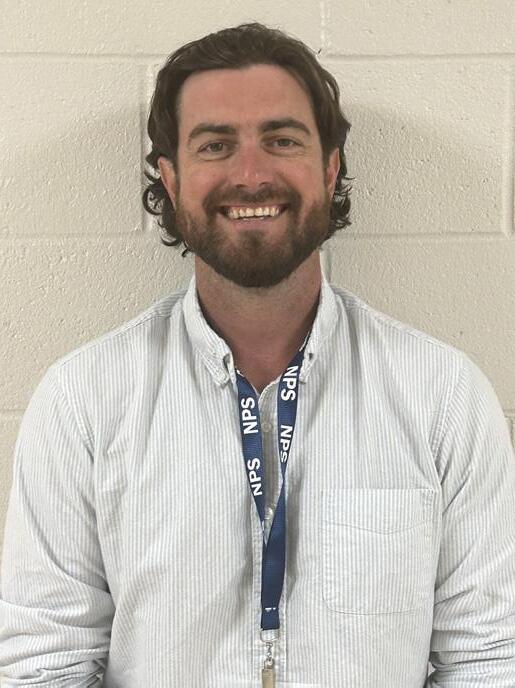
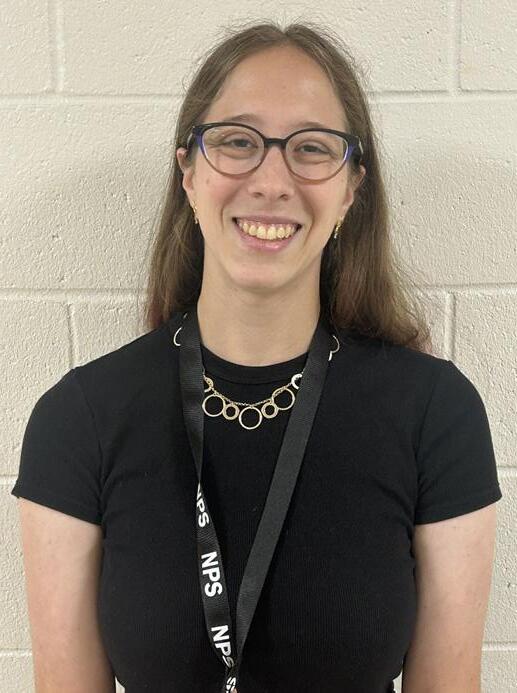
On July 31, the Massachusetts State Senate passed a bill that would ban cell phones and other personal electronic devices in public schools statewide.
Next, the bill will be sent to the Massachusetts House of Representatives, where if passed, it could go into e ect as soon as the fall of 2026.
Before the state legislature began working to create a uniform phone policy for schools across the state, last school year, Newton Public Schools (NPS) took matters into its own hands, implementing new phone regulations for all K-12 students.
At South, the district requires students to place their phones in designated holders during academic hours.
is includes WIN blocks and advisory in addition to regular class periods.
While this policy helped mitigate distractions during class time last year, the degree to which teachers enforced the policy varied greatly. Some followed the rules strictly, while others disregarded the policy, creating inconsistency.
A statewide law, as opposed to a districtissued one, would provide a more clear and consistent policy, leading to a greater adherence to the restrictions and resulting in a more signi cant reduction in cell phone use during school hours.
However, the restrictions included in the bill that the Senate passed are far too extreme to justify its bene ts. e new policy takes the form of a “bell-to-bell” ban, meaning students’ devices would be stored away for the entirety of a school day.
is would presumably include free blocks and lunch periods, which could lead to a reevaluation of South’s open campus policy for upperclassmen.
Furthermore, taking away students’ ability to coordinate end-of-day pick-up logistics with their parents and communicate with peers about a lunch location is an unnecessary overreach that will result in a signi cant loss of student autonomy.
Additionally, many clubs — including e Lion’s Roar — use technology that cannot be accessed through school-issued chromebooks, which would make participating in extracurricular activities more di"cult for students. e bill’s intention, according to the State Senate’s press room, is “to boost focus, improve mental health and foster healthier learning environments."
We, however, do not believe that a “bellto-bell” policy is the best way to achieve this goal.
Instead of banning the use of personal electronic devices entirely, making schools do the impossible — that is, asking students, families and sta to abandon a lifestyle that has
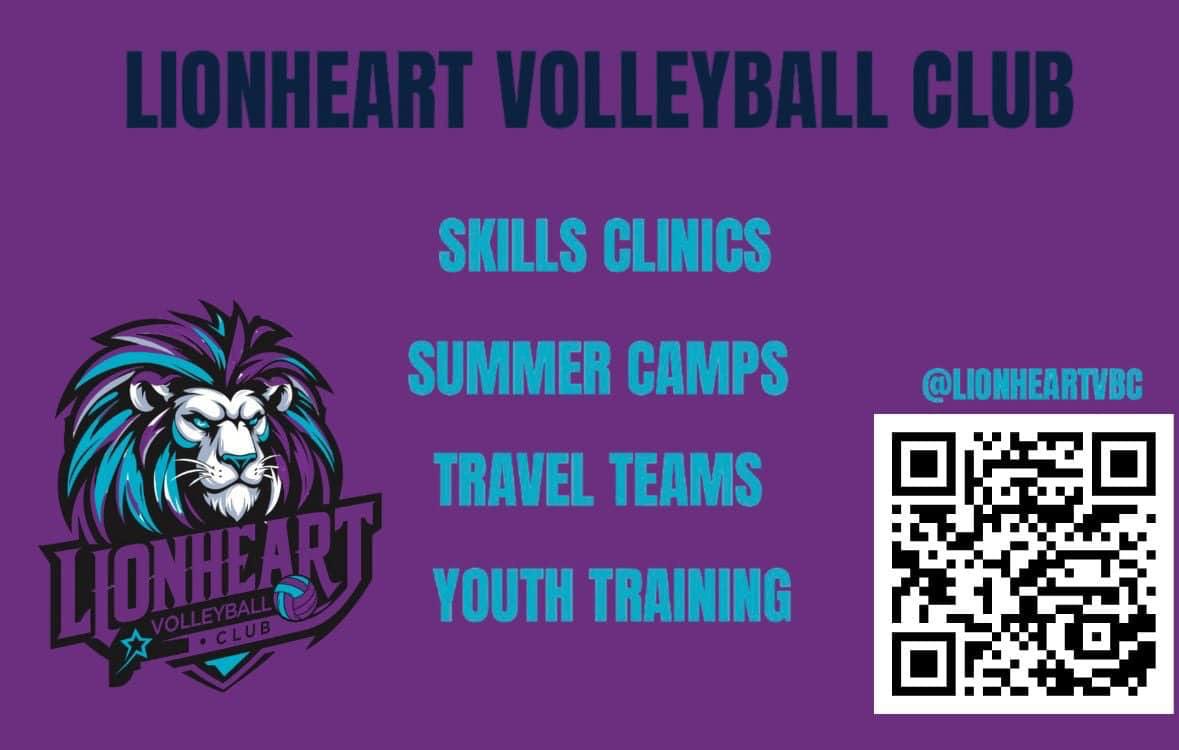
e Lion’s Roar, founded in 1984, is the student newspaper of Newton South High School, acting as a public forum for student views and attitudes.
e Lion’s Roar’s right to freedom of expression is protected by the Massachusetts Student Free Expression Law (Mass. Gen. Laws Ann. ch. 71, Section 82). All content decisions are made by student editors, and the content of e Lion’s Roar in no way re!ects the o"cial policy of Newton South, its faculty, or its administration.
Editorials are the o"cial opinion of e Lion’s Roar, while opinions and letters are the personal viewpoints of the writers and do not necessarily re!ect the opinion of e Lion’s Roar. e Lion’s Roar reserves the right to edit all submitted content, to reject advertising copy for resubmission of new copy that is deemed acceptable by student editors, and to make decisions regarding the submission of letters to the editors, which are welcomed.
e Lion’s Roar is printed by Seacoast Newspapers and published every four weeks by Newton South students. All funding comes from advertisers and subscriptions.
In-school distribution of e Lion’s Roar is free, but each copy of the paper shall cost one dollar for each copy more than ten (10) that is taken by any individual or by many individuals on behalf of a single individual. Violation of this policy shall constitute theft.
become deeply ingrained in our daily lives — why not implement more moderate statewide regulations, similar to the ones that NPS championed last year, which strike a greater balance between addressing the negative consequences of phone use and retaining student and family autonomy and accountability?
By taking this approach, we expect a greater ease of implementation, broader acceptance of the policy and — most importantly — an opportunity for educators and families to help students learn digital responsibility. is approach does require a standardization of enforcement mechanisms.
Assigning students individual phone holders and using them to take attendance should be the standard policy.
It is also important to consider that in many cases, school districts across the state have no phone policy at all, so making the immediate switch to a full ban would be even more challenging.
A universal policy that incorporates these elements would promote student autonomy and accountability, allowing students to maintain a balanced social life that mitigates some of the negative e ects of excessive screen time, but maintaining the methods of communication that many have become accustomed to.
As phones become increasingly ingrained in society, it is important for young adults and
teenagers to learn how to use them properly and thoughtfully.
Schools should be a place where students learn to lead safe, healthy lives; therefore, implementing a moderate, consistent policy would be an even more e ective next step.
It is crucial to teach students about responsible phone use, and a full ban would not allow for the adequate skills required for navigating the day to be developed.
In all cases, a partial ban provides ample opportunities for education about responsible technology use.
If schools issue a full ban on phones, they miss the opportunity to teach their students self-restraint and good decision making.

Newton South High School’s Student Newspaper
140 Brandeis Road, Newton, MA 02459 ss.lionsroar@gmail.com
Editors-in-Chief
Andrew Feinberg
eo Younkin
Managing Editors
Ava Ransbotham Sarah Schwartz
Section Editors
News
Seyoon Byun
James Garrett
Abby Miller
Sanjana Tewari
Opinions
Angela Tao
Emily Wang
Grace Yang
Photo Managers
ayer Bialek
Lev Navisky
Centerfold
Hana Futai
Ellie Shim
Social Media Manager
Aleeza Amitan
Business Manager
Adam Ransbotham
Faculty Advisor
Ashley Chapman
Features
Laura Feng
Andrew Petrilla
Allison Sam
Bethesda Yeh
Sports
Clara Borus
Owen Halberstadt
Mitchell Lookner
Graphics Managers
Clare Cho
Ellen Wu

Sarah Schwartz Mananging Editor
As I was walking down the street with my friends one night this summer, I stopped dead in my tracks. My friends, lost in conversation about which ice cream place we’d be visiting, made it a couple steps before realizing that I was in fact no longer with them.
“Sarah!” they called back, turning to see their lost soldier so far behind them.“Hurry up!”
I just stood there.
“Sarah, come on!”
I just stood there, slowly spinning around with my head tilted slightly back, gazing up into the dark nothingness.
“Sarah, bro, what are you doing?”
Again, no answer. !ey trekked back to "nd me crouched in the grass, slowly creeping through the thick blades.
“What, did you lose an earring or something?” they asked. “Sarah, you’re never going to "nd it.”
“Shhhh!” I hushed, jerking my pointer "nger to my lips and whacking them on the arm. After a moment, I slowly turned my head. “Guys look!” I exclaimed, pointing into the dark. !ey followed my wide eyes into the dark. !ey looked over at me expectantly, my hand clamped over my mouth, waiting for an explanation. “Just wait, just wait,” I promised.
And then there it was. Just for a second. A dot of yellow against the dark sky. A icker of light.
A "re y.
!e "rst "re y I’d ever seen — clearly, as evidenced by my dramatics.
But the dramatics continued. Each time we ventured out for a nice, peaceful nighttime walk, my friends were guaranteed to be slapped on the arm and interrupted mid-conversation countless times to stop and look at the oating specks of light.
My friends, many of whom had seen "re ies before, ribbed me and my obsession
with my family.
But more and more, I "nd that this light in my eyes dims just a little each time I scroll on my phone. Much like the city lights that drown out the "re ies’ spark, the glow from my phone sweeps me away for hours and sucks me into a world where I numbly watch others live their lives.
It keeps me from living mine. And from experiencing all the wonder that exists in the world. It keeps me from cracking open a book and delving into beautifully-crafted worlds
If we stop in our tracks, tilt our heads back, spin around slowly and gaze at the dark night sky, we can "nd the small ickers of light, joy and beauty that return the bright wonder to our eyes.
with these bioluminescent insects. But when they saw the pure wonder that literally and "guratively lit up my eyes each time, like it was the "rst time I’d seen one, they gazed on with excitement, too.
!e light that they saw in my eyes had been ever present when I was younger — reading books that took me to other worlds, lying on the ground gazing at the night sky dotted with stars and spending time and sharing laughs
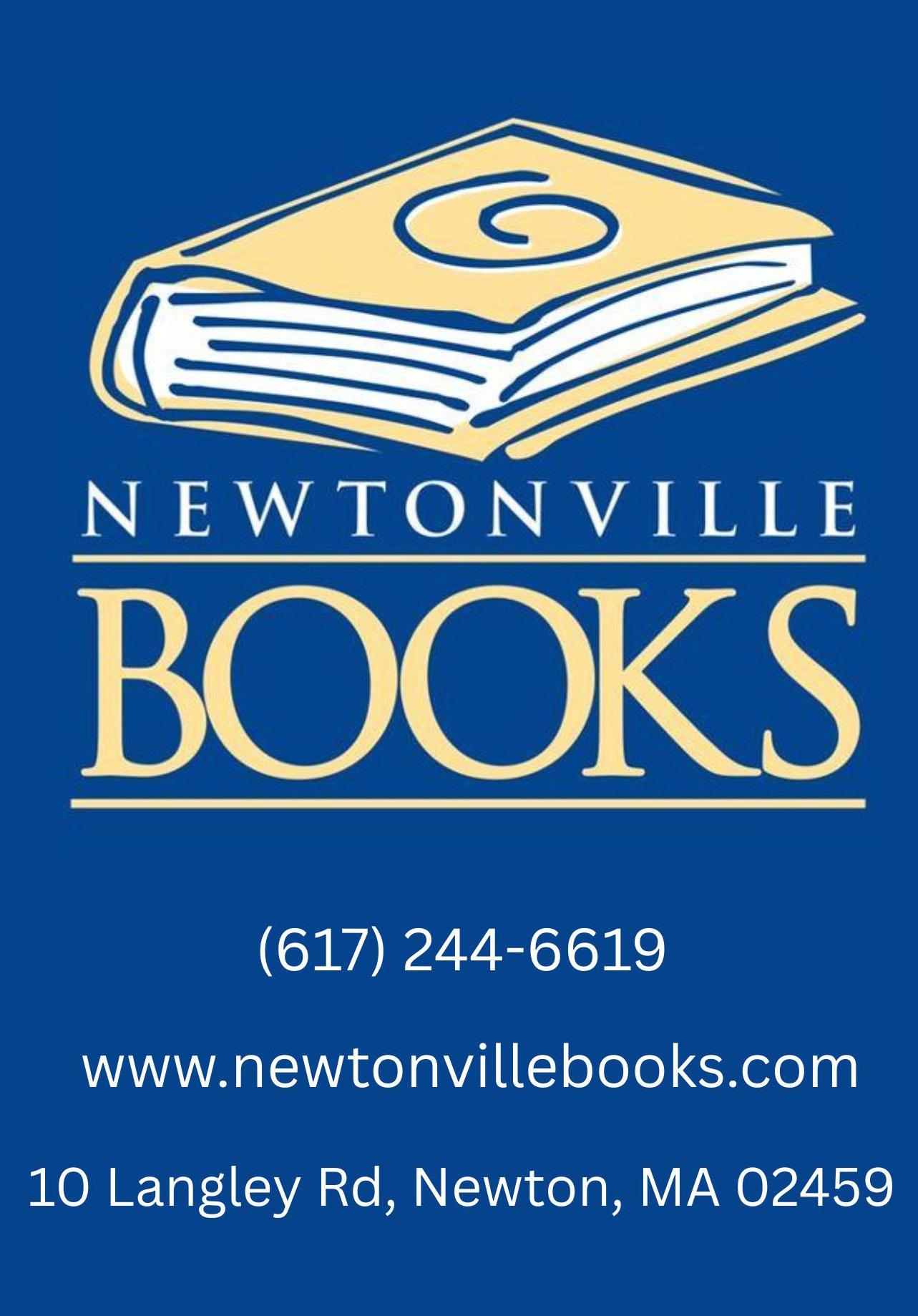
where I meet characters who inspire and challenge me.
It keeps me from wandering outside and stopping to smell all the owers or gaze at the moving clouds. It keeps me from being completely present in the precious and eeting moments I spend with my family.
Every day I embark on the constant effort to extract myself from social media that so easily sucks me into a self-sabotaging spiral. I
hope to instead live my own life to the fullest. To get lost in the mundane, yet meaningful moments that make up each day. To keep chasing the sparks in life that light up my eyes with the same wonder that stopped me in my tracks to watch those "re ies streaking across the dark night sky.
Fire ies don’t live for very long, most for just 61 days, but while they’re alive, boy do they light up the world around them.
!ey provide that icker of light on a dark night.
!ey remind me to embrace those small moments of joy on a long, exhausting day. And to treasure that burst of laughter with my friends when I’m sure I’m about to cry. And to remember to slow down and breathe and enjoy life.
!e spark of the "re ies gives me that strength and encouragement to keep going. !at icker of hope when nothing feels like it can go right. !at belief that tomorrow might be better.
!e small insects that create light with their bodies in the two months they have to live teach me to appreciate the beauty that this life holds. It’s the beauty that exists in the small moments every day if we take a moment to look for it.
If we stop in our tracks, tilt our heads back, spin around slowly and gaze at the dark night sky, we can "nd the small ickers of light, joy and beauty that return the bright wonder to our eyes.

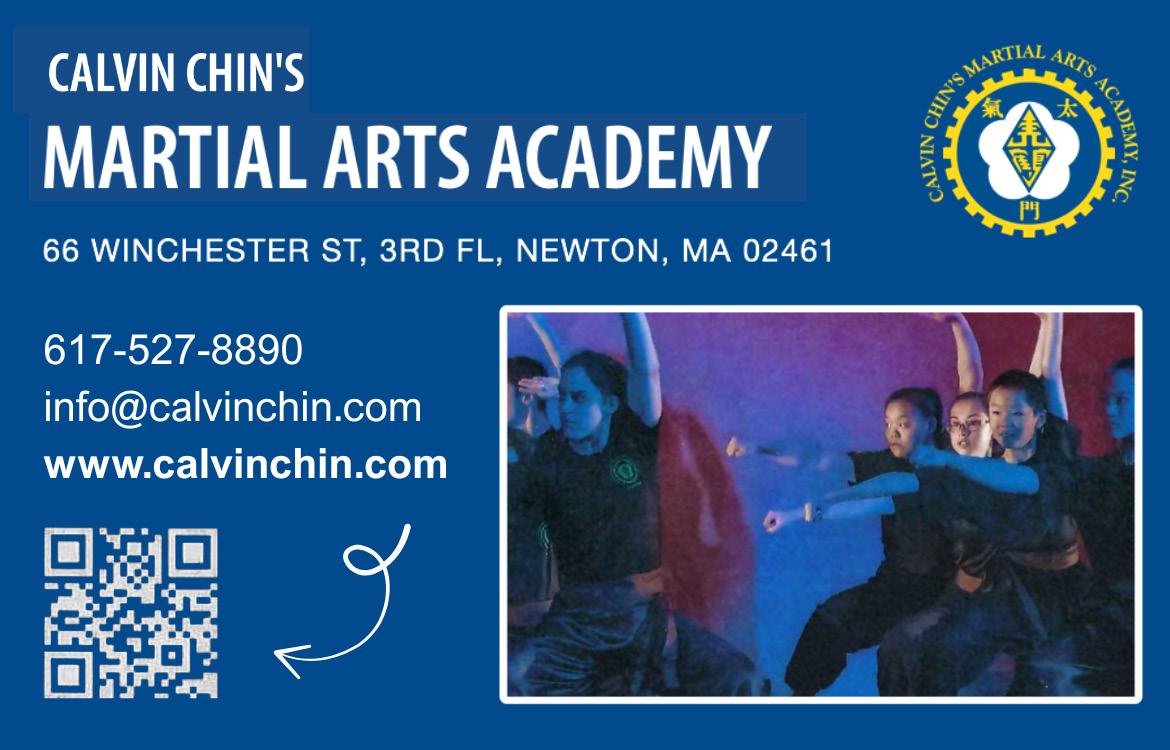

tI tried chocolate chip ice cream from three stores in Newton, as well as a unique flavor from each. Here's my comphrensive — and maybe even cone-tentious — review.
By Abby Miller

ally’s is an Auburndale institution, and it’s always a spring highlight when it reopens for the season. !e store is decorated with pastel colors and ice-cream-themed paintings on the teal walls. !ey also have the coolest chandeliers I have ever seen, and I feel like those colorful light "xtures may have even enhanced my ice cream experience. Leaving Wally’s with ice cream in hand feels somewhat like exiting Wonderland.
I tried their “Flying Fish Fudge” avor, which was a unique blend of chocolate, chocolate and … more chocolate. As a chocolate lover, however, this avor was perfect. !ere were surprise bits of M&M’s hidden inside, too, which added a nice crunch.
If that wasn’t already enough chocolate — which it certainly wasn’t for me — the chocolate chip ice cream was e chocolate chips were evenly spread, with a good ratio of base to chips, and the portions were reasonably priced and sized. It tasted exactly as it should: classic and timeless. !e only challenge was that the store doesn’t take Apple Pay, so make sure to have some cash or a physical credit card ready.
ANewton Centre staple, J.P. Licks always has a steady stream of customers. With a large variety of menu options ranging from milkshakes to birthday cakes, it’s no wonder there’s always a line. Not to mention, out of the three ice cream locations, J.P. Licks is the only one o ering widely loved soft-serve ice cream. Plus, they have the best dipped wa e cones in Newton.
While the Moon Pie avor wasn’t exactly “moonbeam” ice cream — as I had hoped — it certainly tasted mystical. And magical. And pretty similar to cookies and cream ice cream. Unfortunately, I couldn’t get past the knowledge that my food nemesis, marshmallow, was mixed inside this treat. Note to self: next time, I should probably order based on ingredients, not titles.
e chocolate chip ice cream did not disappoint — when does it ever? Even though the New York Times said that chocolate chip ice cream was “falling out of favor” last year, one taste of J.P. Licks’ rendition of the classic avor would make the editors rethink their opinion. !e ratio of chocolate chips to ice cream was perfect, and I had to stop myself from eating all of it — the Moon Pie ice cream was starting to melt.
Ho ho ho! Apparently Rancatore’s — sometimes colloquially referred to as “Ranc’s” — believes it’s Christmas in July … At least, that’s the name of the special ice cream !avor I got. If peppermint is a favorite seasonal !avor of yours, this ice cream is for you.
While I’m not typically drawn to peppermint, my longtime desire to celebrate the holidays all year-round overshadowed logic. "e minty !avor was especially refreshing on a summer day, and it even made humid, mid-July weather seem more like a cold, snowy December. Neither the Oreo pieces nor the bright red swirls, evocative of peppermint candies, distracted from the smooth, milky texture of Rancatore’s ice cream.
I was drawn to the fresh, homemade hot fudge, but in the interest of taste-testing fair ness, I once again ordered chocolate chip ice cream. "eir chocolate chips were the largest I’ve had, and they had the strongest chocolate !avor, but I had to dig deep to nd them.
e ice cream’s butter-like consistency was noteworthy. "e !avor itself was also the perfect mix of bittersweet chocolate and sugary vanilla.
I can see why Rancatore’s is to North what J.P. Licks is to South.

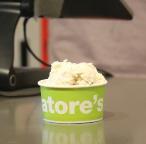


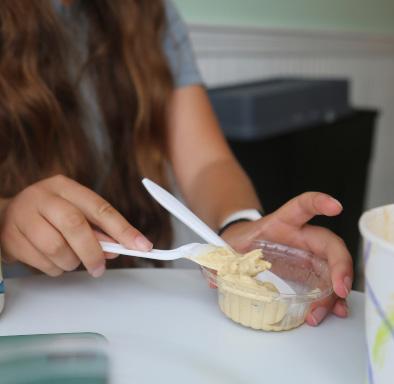
By Anastasia Karpova & Forest Lanciloti
On June 24, 2025, the New York City Democratic mayoral primary resulted in an upset. Andrew Cuomo, New York’s former governor and the candidate massively favored in the polls, conceded the election after the !rst round of ranked choice voting showed him at a seven-point de!cit to Zohran Mamdani, a New York State Assemblyman.
When the !nal tally came out a week later, Mamdani won by almost 13 percentage points. To put this landslide in perspective, President Barack Obama won the 2008 presidential election by just over seven points.
Mamdani’s win was especially impressive given !erce competition from over 10 candidates. New York’s current mayor, Democrat Eric Adams, is massively unpopular — after Adams cooperated with President Trump in exchange for the dismissal of his own corruption charges, many opportunistic politicians viewed this race as prime time to challenge him. "e heat appeared to get to Adams, as he dropped out of the Democratic primary and opted to run as an independent candidate in the general election.
Cuomo, who resigned as New York governor in 2021 over sexual harassment allegations, was heavily favored to win. But as the campaign season progressed, Mamdani continued to rise in the polls. "e di erence between the two candidates is clear: Mamdani proudly calls himself a democratic socialist and is running on simple, but promising, policies aiming to make NYC more a ordable, while Cuomo’s campaign mirrors national
Democratic positions and o ers next to no real solutions for New Yorkers. Accordingly, this election received national attention as a potential referendum for how voters want the party to progress.
Mamdani's landslide victory is momentous, but how exactly did he attain an upper hand over Cuomo, a representation of the reigning establishment Democrats? Well, Mamdani focuses on one thing: the people. He doesn’t make empty promises. Mamdani makes genuine connections with voters through outreach; a social media presence; press; and clear, achievable goals appealing to the majority of New Yorkers, not the White House and top one percent.
In early June, he walked, top to bottom, the length of Manhattan — all documented online — because, as he put it, “New Yorkers deserve a mayor they can hear, see and even yell at if they need to.” Along the way, he greeted passersby on the street, promoted his campaign and handed out campaign cards and yers.
"is documented walk was not the !rst time Mamdani has directly interacted and spoken with New Yorkers. Almost all of his promotional videos include bloopers of him greeting, talking with and taking pictures with locals. He prioritizes organic interactions over his script. He knows how to communicate. "e people recognize him.
Furthermore, his self-proclaimed identity as a democratic socialist appeals to many tired of the Democratic establishment’s perceived inaction as the cost of living rises. When
Mamdani was asked in a CNN interview if he “liked capitalism,” Mamdani responded honestly, “I have many critiques of capitalism,” an opinion that many other politicians are afraid to express — despite the fact that our current economic system is actively failing millions of homeless and impoverished people in America.
“What I’m focused on is dignity and taking on income inequality,” Mamdani continued. His ac knowledgment of New York City’s wealth disparity, as well as his real plans to !x it, are some of the biggest reasons that his message resonates with many. He says it overtly: he !ghts for the workers. He vows to support the middle and lower classes, the overwhelming majority of people in the city.
Compare this to Cuomo, who has received millions of dollars from a super PAC supported in part by established billionaires — and even threatened to lay o thousands of unionized workers in 2011.
Mamdani has three clear goals that are people-driven and a ity-focused: rent freezes, free buses and free childcare for all. "e support he has received for these well-communicated goals is tremendous. Cuomo, on the other hand, attempted to campaign on the premise of a ordability, but re jected a tax on the wealthy to support
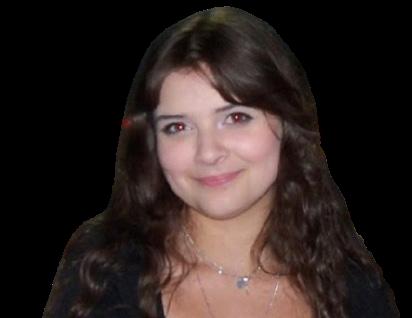
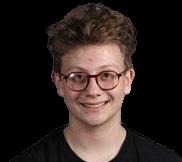
universal childcare and has not acknowledged that many neighborhoods do not have enough space for his proposed childcare plan. Since 1950, almost every Congressional midterm election has resulted in a net gain for the party not in control of the White House, in the the House of Representatives and often the Senate as well. As the 2026 midterms loom, in theory, Democrats should have nothing to worry about — especially given that Trump’s
However, Democrats across the country ght: their party as a whole remains unpopular. As candidates upcoming midterm election ing to regain control of the ers them

By Ana Ciric & Michelle Wu
Recently, I’ve found myself spending more time scrolling through Instagram, where I noticed my friends commenting on a speci!c type of video. In these videos, creators encourage their young audiences to conform to Eurocentric beauty ideals through “looksmaxxing” — the idea that one can“maximize” their physical attractiveness through mainstream practices such as dieting, skin care and exercise — and even “heightmaxxing,” the idea that one can increase one’s own height.
O"ine, I noticed advertisements and billboards promoting plastic surgery while visiting family in Serbia. I was intrigued — and also startled — by these videos’ and marketing campaigns’ blatant encouragement of body dysmorphia and colorism through a hatred of non-European beauty standards.
But I was also worried about the sudden growth of these trends.
Studies have shown that, as Instagram’s popularity has risen, so have the popularity of cosmetic operations. According to the National Library of Medicine, 48.5 percent of female college students in one study reported that social media in uenced their decision to consider undergoing cosmetic procedures.
is study also suggested a correlation between time spent on social media and body dissatisfaction: Social media’s promotion of plastic surgery most a ects those who use these platforms for more
than !ve hours a day.
What makes these ideations most dangerous is their safety implications. An inexperienced surgeon poses a threat to a young adult planning on getting plastic surgery who has not done their proper research.
This is especially worrisome for women, as less than a quarter of female students ask their surgeon about their quali experience various complica tions, including some as high as 42.72 percent in the case of thigh lifts.
as hematoma and bruis es, seroma formation, nerve damage causing sensory or motor loss, infection, scarring, blood loss and compli cations of anesthesia can occur during any cosmetic procedure. More serious com plications,
such as deep vein thrombosis and pulmonary embolism, can cause death.
Although plastic surgery is a practice predominantly centered around women, the problems associated with looksmaxxing and heightmaxxing can a ect men, too.
Content promoting hyper-masculine male bodies has become an incessant barrage in boys’ lives, with masculinity in uencers thoughtlessly throwing around medical terminology — telling viewers that they will reach higher testosterone levels if they buy their products, for example.
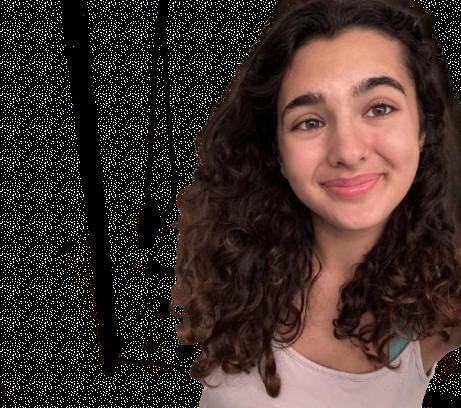

emic, a cosmetic surgeon based in Niš, Serbia, has seen these e ects !rsthand. She reported that many young patients, having seen content promoting plastic surgery on social media, have the impression that operations are much simpler than they truly are.
Plus, these mental health problems can plague patients for the rest of their lives. Over half of Dr. Jeremic’s patients are repeat patients undergoing anti-aging procedures, who have developed a fear of aging.
cal professionals seem to be generally unanimous in ective and dangerous nature of
-
cal health implications, this type of content has drastic effects on the mental health of young people of all genders.
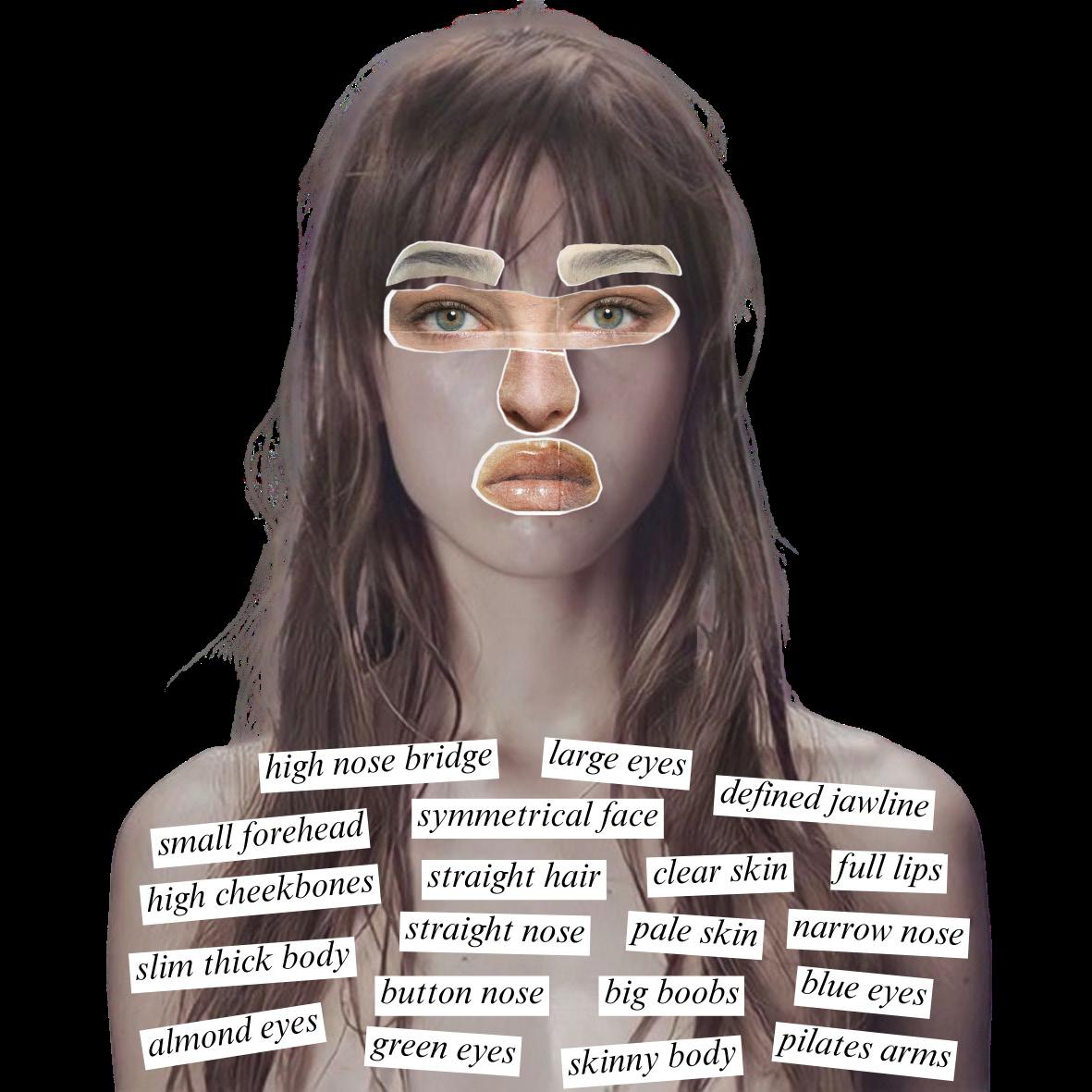
-
No matter how many surgical operations they undergo, patients who seek "perfection" and youth at all costs will !nd themselves addicted to conforming to unrealistic beauty standards.
ese patients will never feel more con!dent.
Portraying plastic surgery, or even the concept of looksmaxxing, as a “con!dence boost" is detrimental to young minds because it simply isn’t true.
I distinctly remember the words of my cousin as I cried when I had my legs waxed for the !rst time. “Beauty is pain. You will learn that as you get older.”
In the seven years since then, I’ve come to disagree. Beauty is a social construct humankind formed to dictate how people must look and behave to receive society’s acceptance. Truthfully, our uniqueness is what makes us beautiful. Erasing our stories and heritage by altering our faces will never bring humanity beauty.


Sun’s out, train’s out — the summer is a great time to explore the T.
By Ryana Nair & Kiril Zhdanov
Stepping onto the Chestnut Hill station platform feels like a grounding experience … probably because your phone will have magically lost all service when entering the station’s vicinity.
But once you get past the station’s
Want to watch a movie? "ere’s a Showcase SuperLux Cinema with all the amenities you can imagine.
Feeling hungry? Enjoy Shake Shack, Chilacates or a bunch of restaurants out of your budget!


Fenway is probably the most iconic neighborhood in Boston. "ere are very few words that describe the the overcoming feeling of joy when approaching the place home to Boston’s most iconic stadium.
trial-chic venue,” as it calls itself, not only hosts local restaurants inside but also multiple
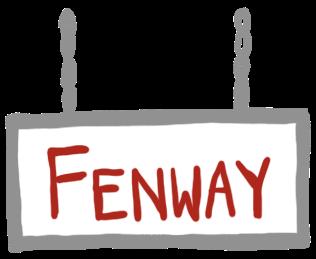

to Auburndale, a village that sounds cozy before you even see it. It has a downtown crowded with all the necessities.
You have enough to eat till you burst; for every craving you have, there’s a classic place to satisfy it: from co!ee shops like
for outdoor barbecuing.
Auburndale has a vibe similar to Stars Hollow from “Gilmore Girls.” It’s a village that’s almost always full of people, events and warmth; we’re just waiting on a Luke’s.

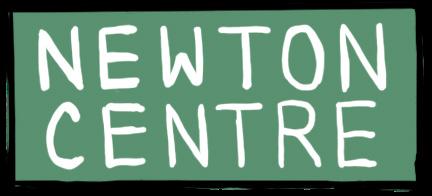
went there out of FOMO when you were younger, it’s a nice place. It’s pretty much perfect for lunch, with Johnny’s Luncheonette, Jinny’s, Bill’s Pizza, Sweet Tomatoes and so many more. Of course, we can’t forget J.P. Licks
wish), but it’s a cutesy place with a myriad of shops, restaurants and charm. I recommend just having fun and remembering to pull out your camera every once in a while. Newton Centre’s de nitely worth a visit.
Hustle culture's infringement on teens' rest has gone too far. It's time to stop enabling sleep deprivation.
By Sophie Lu and Kashvi Shah
Imagine this — it’s 2 a.m. You just nished a laundry list of tasks and nally got into bed, but you can’t stop staring at your bedroom ceiling, wide awake, thinking of the two tests you have the next day.
"is is the shared reality of millions of students — 70 percent of teens sleep less than seven hours a day.
a system that steals our sleep, trapping us into exhaustion.
And unless we make it crystal clear that sleep is a necessity, it’ll become an even more dangerous problem for everyone, not just students.
Insomnia is a common sleep disorder that makes it dif cult to fall asleep or, even when you do fall asleep, sleep well. It can be short-term or chronic, with e ects lying on a spectrum from minor inconveniences to serious disruptions of daily life.
"e causes of insom nia vary. Some inherit it. Natural biological shifts can also be a factor; the Nemours Foundation found that teen bodies release melatonin, the sleep hormone, later at night than in child hood, leading to later sleep and wake times.
But for most teens, it isn’t genetics or hor mones that deprive them of sleep — it’s the endless as signments and relentless stress. Juggling extracurriculars, rigor ous courses and social relationships is not easy, which is why late nights and ca eine shots are routine.
If I had a nickel for every night I fell asleep past midnight — stressing over a competition, writing an essay or cramming for a test — I’d be rich. "ere is no doubt that school stress is a major reason for students’ lack of sleep. And running on ve hours of sleep shows.
Your concentration plummets and motivation wanes. Even marginal decreases in sleep time
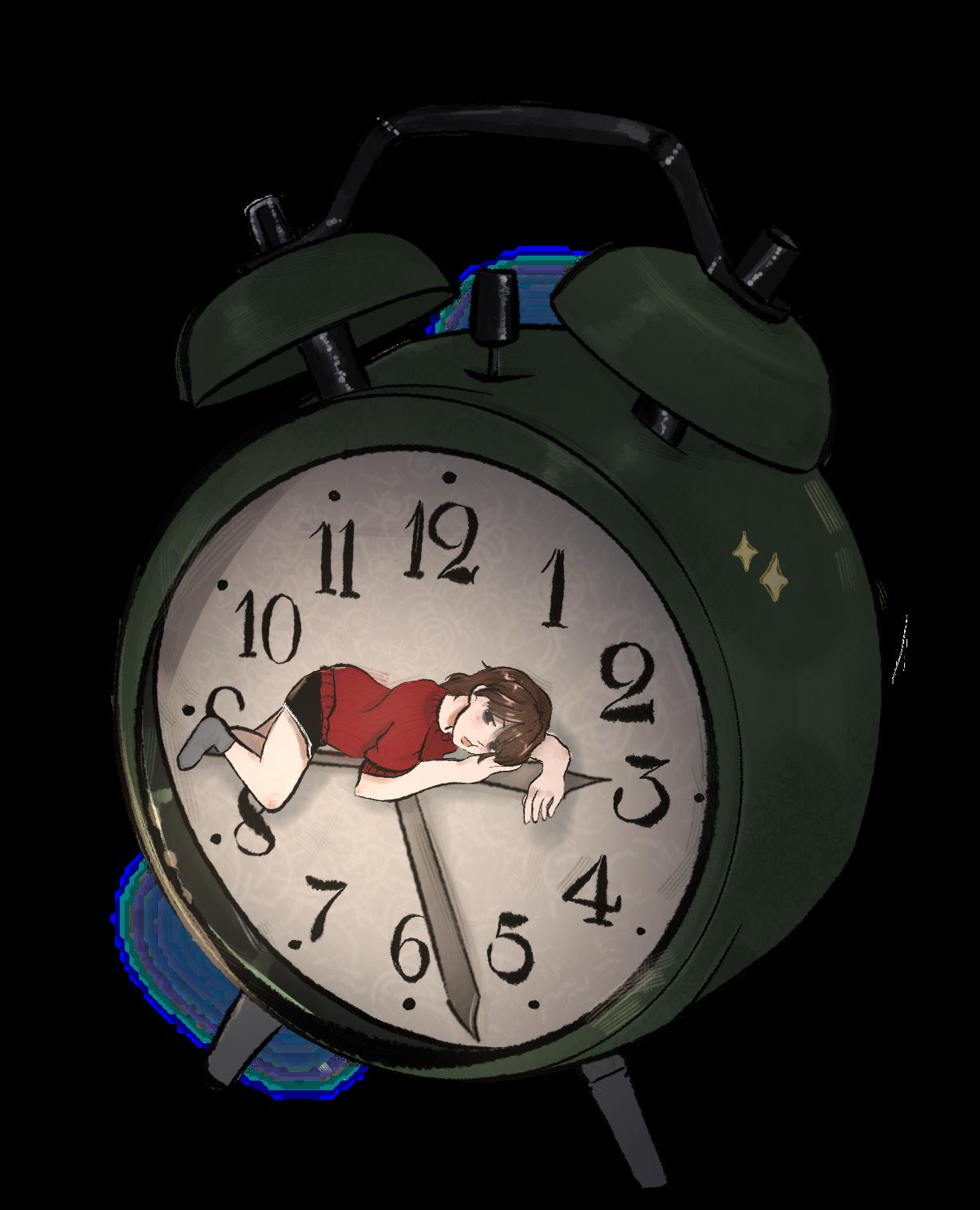
tions, which is why the National Sleep Foundation found that less sleep is linked to more depression.
cheat the forced sleep problem the only way they can: by staying up. is practice has been dubbed “bedtime procrastination,” and to be honest, I completely understand. It’s not lazy. It’s not poor time
If something else — like school, homework, practice or even a part-time job — dictates every hour of your day, then of course one would stay up late into the night just to feel some control.
A normal day in my life would include school, speech or soccer practice and two and a half hours of RSM. By the time I get home, it’s nearly 10 p.m., and I have no choice but to dive into my pile of homework. Sometimes, I just yearn for a moment to myself — the only moment in the day which I can call mine. at right there is bedtime procrastination. It’s not time wasted — rather, it's a time in our bustling lives that can give us an air pocket to breathe. But of course, that backfires, too.
You stay up because you want peace, but nd yourself even more worn down the next day when you’re yelled at for being “moody” or “unfocused.”
No one ever asks the important ques-
I want to say it loud and clear: sleep is more important than any assignment. No grade, test or college application is worth cing your mental health. If teachers or schools say otherwise, they’re disregarding a

Yes yes. I know what you’re thinking: Matty Ice is back? Who? Why? How much did he have to pay the senior sta to get his column back? First of all, it’s nice to see you too. Second of all, if you’re new to the paper, I am Matty Ice, a columnist advisor, thinker, and thought leader who shows up in every issue of the paper. "ird of all, I didn’t have to pay anything.
In fact, I held Andrew Feinberg’s vegan hamster hostage for a couple of weeks until he agreed to reboot my column. I spent most of my summer meditating, practicing my lightsaber skills and enjoying the radiating unemployment of Jonny G. During my weekly karate class, my Sensei asked me a very big question out of the blue. A question bigger than “why did they switch the tra c patterns at South?” A question bigger than “Jordan, LeBron, or Otto Porter Jr.?” He said to me,“Hey Matty, what does it mean to be a senior and represent your school?" "at got me thinking. What does it mean to be a senior at South?
Not just that, but what does it mean to be a junior or a sophomore? Each grade has its own role to play at South in order to balance our fragile ecosystem, so how do we do it?
In order to be a freshman, you have to be one of two things: either scared or incredibly annoying. Most freshmen choose incredibly annoying. "is means acting like it's cool to skip canceled class in the Lecture Hall, reciting brainrot like it's a religion and walking slowly in the hallways. If you think you’re walking slow, walk even slower.
Our tiredness is a warning. If we're serious about preserving the mental health of this generation, then we've got to start treating sleep for what it truly is: a right.
I’m sick of being blamed for being tired or “lazy” when all I really need is a couple more hours of sleep. At South, I’ve seen my fellow classmates surviving on their last drop of co ee, their eyes barely open after staying up late to nish an assignment.
No one should have to encounter this conundrum — having to choose between their sleep and getting a good grade.
Yet when teenagers break down, many try to simplify their pain as “teen angst;” however, that couldn’t be further from the truth. "is constant invalidation is why teenagers try to
Even with the consequences of sleep deprivation being so horrible, even when they're partly brought on by my own coping methods in response to pressures, I actively have to make the choice to sleep.
"at means, sure, I may end up submitting assignments late, because I would sometimes rather take a nap than study. "is trade-o is something I have come to terms with — not because I want to, but because I need to.
Sleeping is not sel sh. Sleeping is not lazy. Sleeping is survival.
Our tiredness is a warning. If we’re serious about preserving the mental health of this generation, then we’ve got to start treating sleep for what it truly is: a right.
"e main goal for sophomores is to separate yourselves from the freshmen. You’re no longer the youngest in the school, so prove it. Be nonchalant. Act chill with the juniors and seniors. Don’t walk to school with your mom. "at kind of stu Juniors’ main focus is school. Lock in and activate nerd mode. Quizlet, the library, WIN blocks, ChatGPT and the kid who picks his nose in the corner of your class will be your best friends this year. You also will probably have your license at this point, which means you should get to Brandeis at 6 a.m. in your mom’s Subaru if you don’t want people to see you parallel park (because I know damn well you don’t know how to).
"e main goal for seniors is to act like the senior slump has immediately started. Act tired and drink co ee while rolling up to class 15 minutes late. Stay out of relationships with underclassmen. Skip your electives. Kick underclassmen out of the senior commons. Participate in all the fun senior spirit and traditions there are at South (there are none; you’ve been here for four years and you should know that by now). Put cupcakes in the stairwells because it’s original.
By Hana Futai
Whether gaining leadership skills at a childhood camp, calculating probabilities for a professor’s intern team or working a classic summer job in an ice cream store, students take agency over a world of opportunities through their work during summer break. Entering a new school year, they are better prepared to give back and take on challenges ahead.
Since 2015, Newton’s Human Services Division has facilitated paid internship opportunities through the Newton Youthworks Summer Internship Program. rough their ties to numerous municipal departments, nonpro t organizations and small businesses, the program connects around 25 Newton students each summer to unique opportunities in a eld of their interest.
Newton’s Acting Director of Human Services Meri Haas said that the goal of the program is to build career readiness.
“For a lot of these folks, it’s their rst job,” she said. “We o er workshops every week, so there's [also] training around what sorts of careers are out there, and how to write a resume.”
Haas said that students are encouraged to step out of their comfort zone and explore skills that are less accessible during the academic year.
“It's an opportunity for folks to engage with adults in a di erent way that aren't their teachers or coaches or parents. [ ey] nd out also what they don't like as much as what they do like,” she said.
of the combining of the two.”
Fueled by her interest in law and government, sophomore Ariel Hollander pursued an internship for Marc Laredo’s mayoral campaign. She said that working in local politics gave her a deeper understanding of civics, expanding beyond history lessons in the classroom.
“It's super cool to see how the local government works,” she said. “ e best thing that
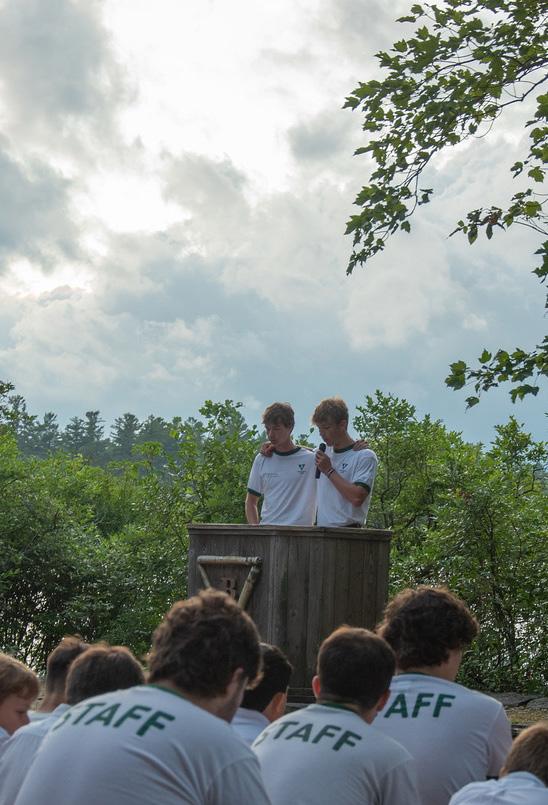
Looking for similar opportunities , many other students seek internships to gain work and life experience. Providing opportunities for students to explore their passions outside of the classroom, summer break gives students time to dive deeper into their academic and career interests.
Junior Joya Tendulkar spent her summer interning for a chemistry professor’s lab at Boston College. She said that the experience encouraged her to delve into the complexities of science.
“Even since I was little, I wanted to go into STEM, but I never really realized how in depth on the tiniest, tiniest, thing you can go, so [the internship] broadened my horizons in the sense that I know there's so much out there left to explore and learn more about,” she said.
Tendulkar said that writing her own research paper at her internship pushed her to intertwine her knowledge and skills into the work she produced.
“In school, I don't combine as many di erent skills into one like I would when I was writing the paper,” she said. “[In] school, you do a math problem [and] you write an English essay separately, but there's not a lot
I take out of this campaign is the knowledge and experience in this eld of government, seeing how it functions and works.”
Hollander said that her work aligned closely with her commitment to the community.
e internship with Marc Laredo shows my passion for youth action and youth change, my passion for government and politics, and the leadership side of me,” she said.
Students found unexpected outlets to connect with their community through new environments and by developing a range of connections.
For ve weeks, senior Kennedy Kranenberg interned in a chemistry lab at New York University. She said that she was touched by
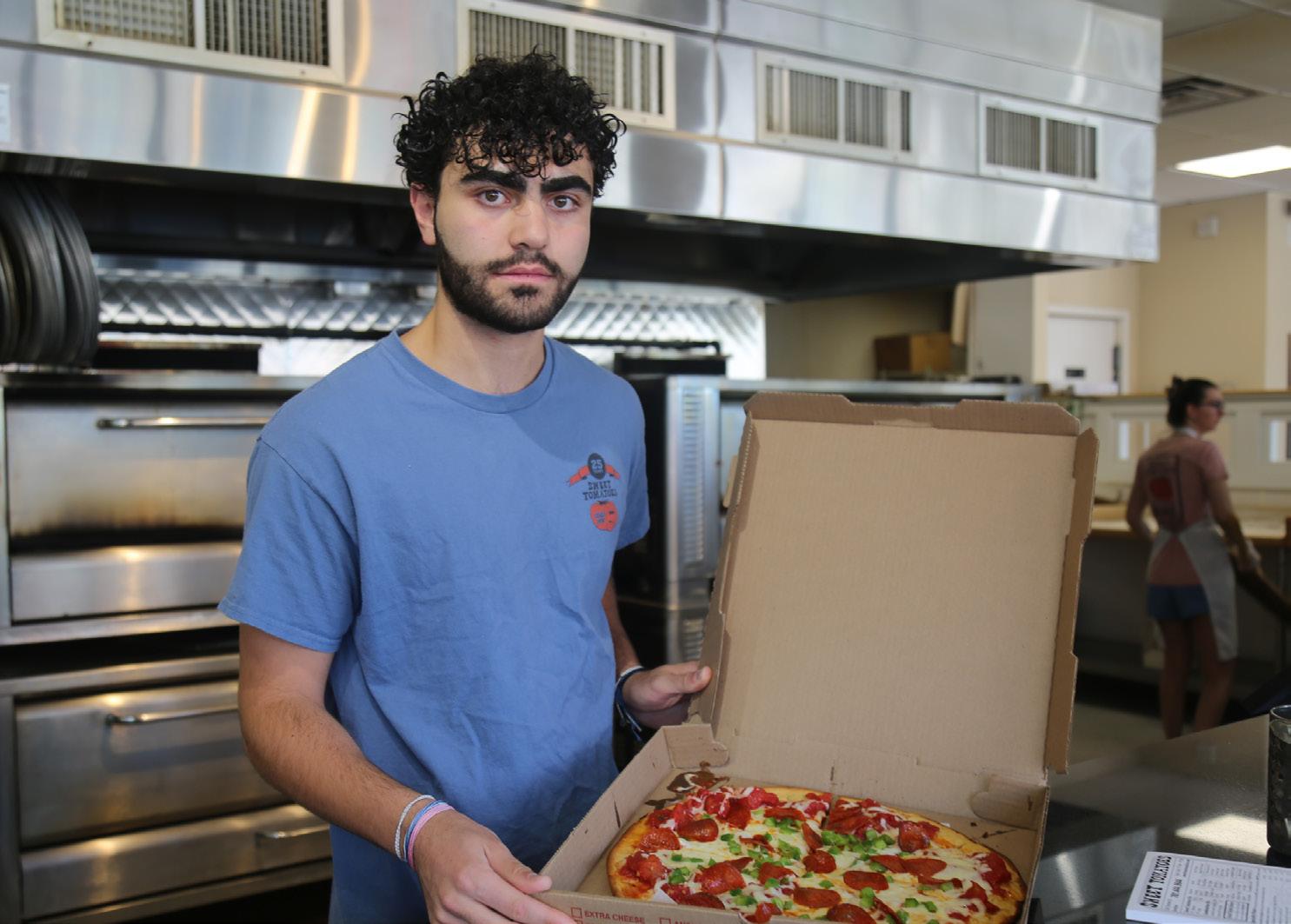
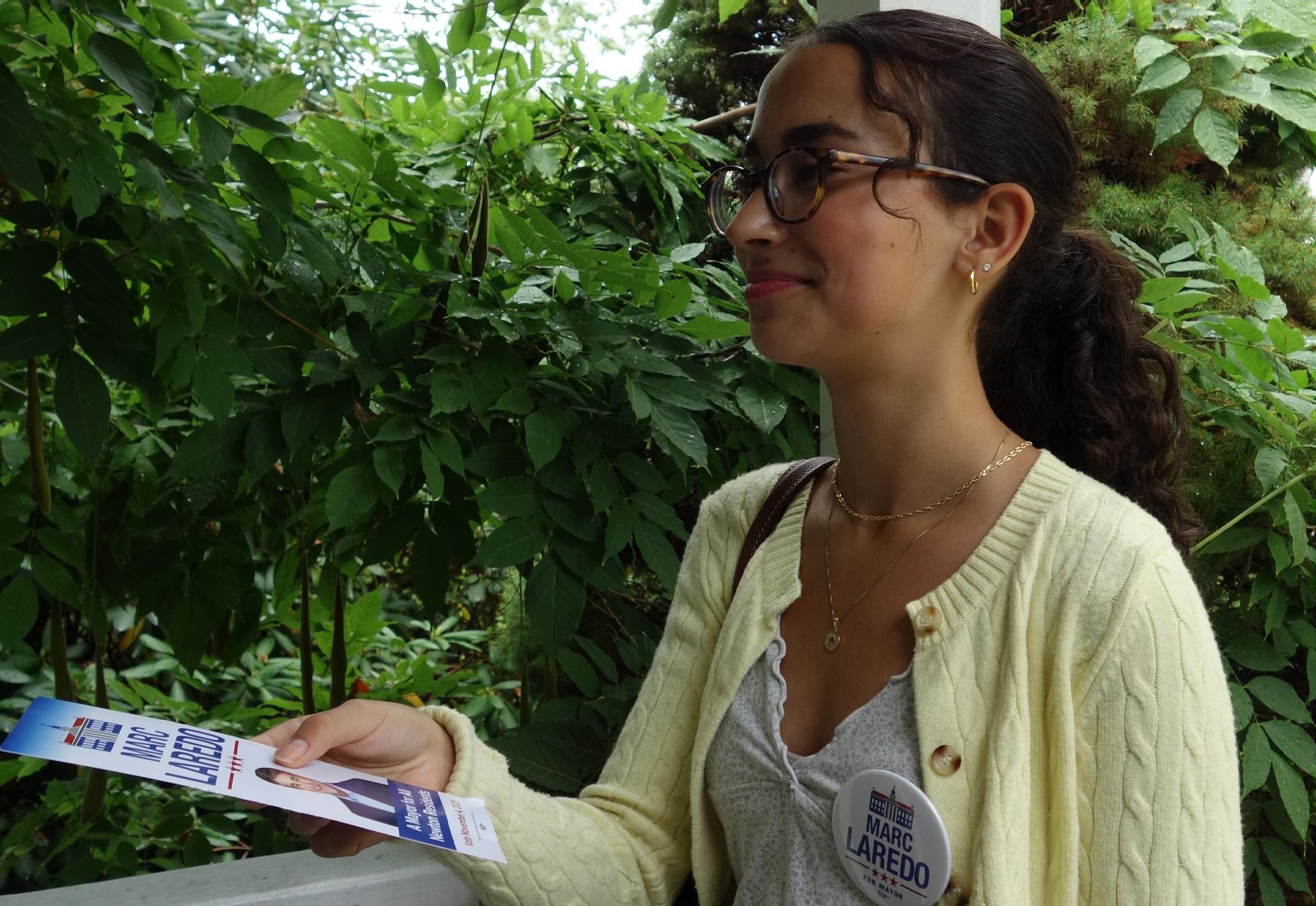
South students develop critical life skills and discover new uplift their community.
the attentiveness of her primary investigator, who ensured that interns bene ted on personal and professional levels.
“She told us that she would support us through whatever college we chose, and she would help us nd undergrad research opportunities,” she said. “She really cared about us as people, and she didn't think we were just there for an internship. She wanted long-term relationships with us.”
Likewise, Hollander said that Laredo
made thoughtful e orts to connect and communicate with his interns, which enriched her intern experience.
“[Laredo] takes the time to individually talk to us about the campaign because he really prioritizes how we learn,” she said. “He’s great about introducing us to new people and making sure that we take lessons out of this.”
Hollander said that collaborating with adults taught her that youth play an important role in bringing unique perspectives to the conversation.
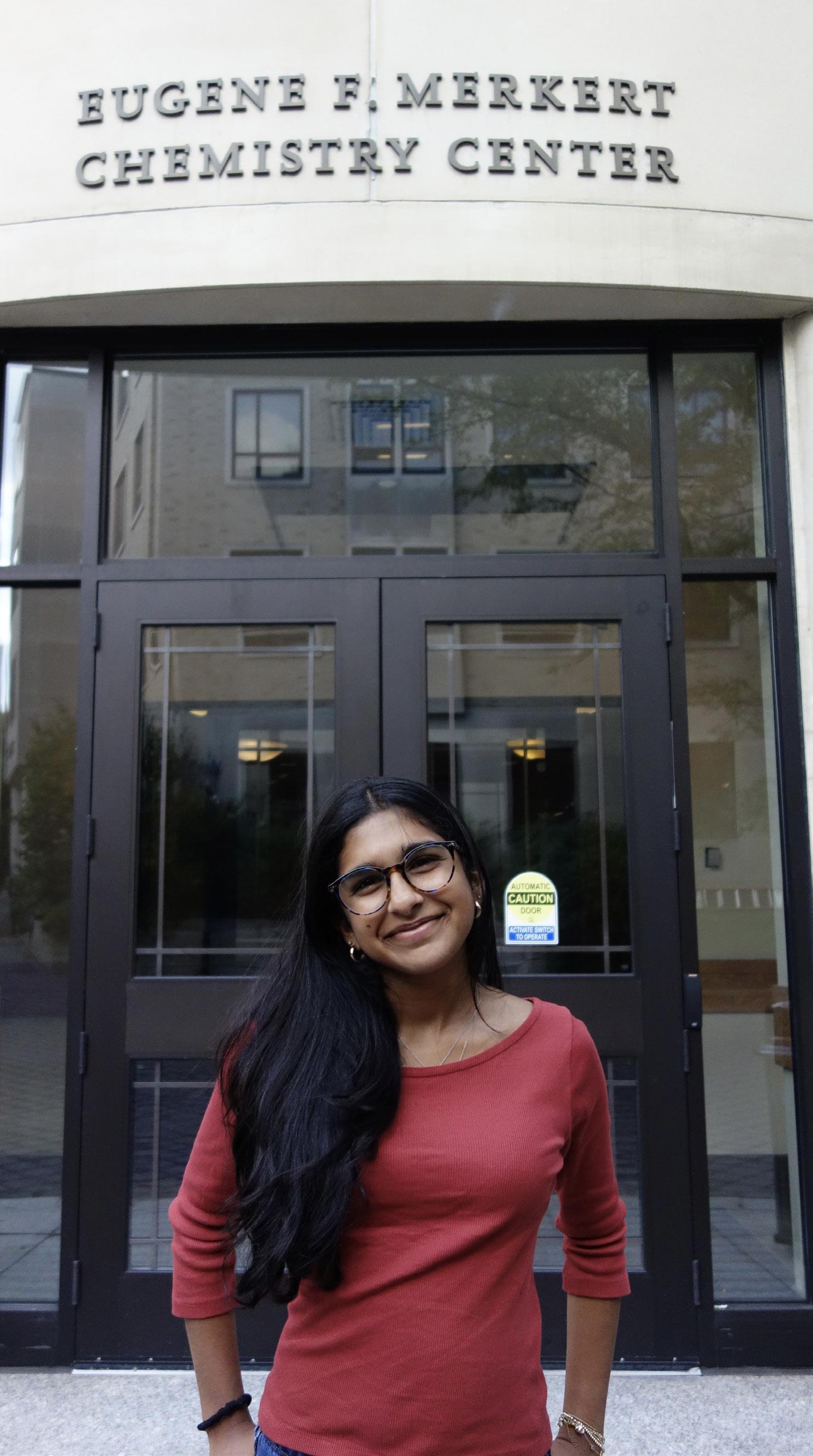
“A lot of times, there's a separation between youth and adults, especially in politics and government,” she said. “As a teenager, something I bring to the table is a fresh take on things.”
Over the summer, as students experience glimpses of adulthood at their childhood camps, they learn to bridge the gap in their mentor-to-mentee relationships. For some students, working at beloved summer camps was a way to give back to their community.
After spending six summers at Camp Becket, senior Will Everett became an aide for younger campers this summer. Everett said that through his leadership at camp, he strived to help campers build character and feel the love of the community.
“We really encourage kids to step out of their comfort zone and become better versions of themselves,” he said. “Being an aide is the transition between experiencing camp and giving love, expressing it to other people and showing other people how to love camp.”
Junior McKenna Levy joined her camp’s Counselor in Training program this past summer and said that the counselors’ commitment to building a tight-knit community has fostered unforgettable friendships.
“We're all in a place that we love and we all have the same goal: we want the campus to be happy and we want [campers] to have a good time,” she said.“When we all are working towards that common goal, it creates a bond that isn't like anything at home.”
By working in diverse and demanding environments, students strengthen communication skills, applying them both inside and outside their lines of work.
Senior Quinn Adams has worked as a lifeguard for two summers. Working alongside a team of guards, she said that she’s learned how to delegate tasks e ciently with peers.
“You don't want to yell across the pool at someone, so it's a lot of just communicating within our group to have each other help out if someone's busy or preoccupied doing something, but the rules still need to be enforced,” she said.
Adams said that her job also helped her build a new sense of awareness.
“I have learned a lot about safety in the context of looking out for the community as a whole,” she said. “With jobs that are assigned that we have to keep checking throughout the day, we really learned the importance of making sure everything that needs to be done is done for the good of the community.”
Senior Chloe Sussman works as a J.P. Licks server in Wellesley. She said that the communication skills built through customer
service work are bene cial in professional settings.
“ e customer service part is just such a good experience and so good for people before college, especially because when you go have a conversation with an adult, it translates so well that you can just talk to people,” she said.
Senior Antranig Chitchian works at Sweet Tomatoes Pizza. He said that he has become more open-minded about others' differences both inside and outside of his work.
“A lot of people I work with don't speak English too well, so I've realized that being more patient with people and understanding di erences that they don't speak English as well as me really helps,” he said.
rough a broad range of eye-opening opportunities, students built a foundation of critical life skills to apply to their futures.
Sussman said that working has pushed her to allocate attention to her nances and develop a more independent side to herself.
“I have a stock account now, and so I've been trying to do a lot of savings,” she said. “I never really thought about it because I just had my parents' money, which I could use. But now that I have a job, I pretty much use everything I make for food and clothes.”
Everett said becoming an aide has cultivated his self-awareness, becoming a more intentional gure that campers can look up to.
“[Camp] has given me a good basis of empathy and talking to people younger than you,” he said. “It’s given me a good perspective on being a positive role model in your actions and how you present yourself to kids who are very tapped into what you're doing and replicate what you're doing.”
Re ecting on their summers of treasured moments, students cherish the inviting communities that have given them a di erent sense of home.
Since completing his tenure as an aide, Everett said that he is immensely grateful for the valuable memories and experiences he has gained through camp.
“It's truly been the best summer of my life so far, just because of the amount of stu I've learned, as well as the people I'm spending it with,” he said. “I love this place and I want to give back to this place as much as I can.”
Levy said that above the nancial aspect of her job, she’s most grateful for the genuine relationships and lifelong memories she built while working at camp this summer.
“I'm not [working/counseling] for the money. I'm doing it because I love being here, and I love the kids. I love the experiences that I'm getting from it, and the memories are just priceless,” she said. “It doesn't feel like work; it's like getting to do something that I love, and then it's a bonus when I get paid.”
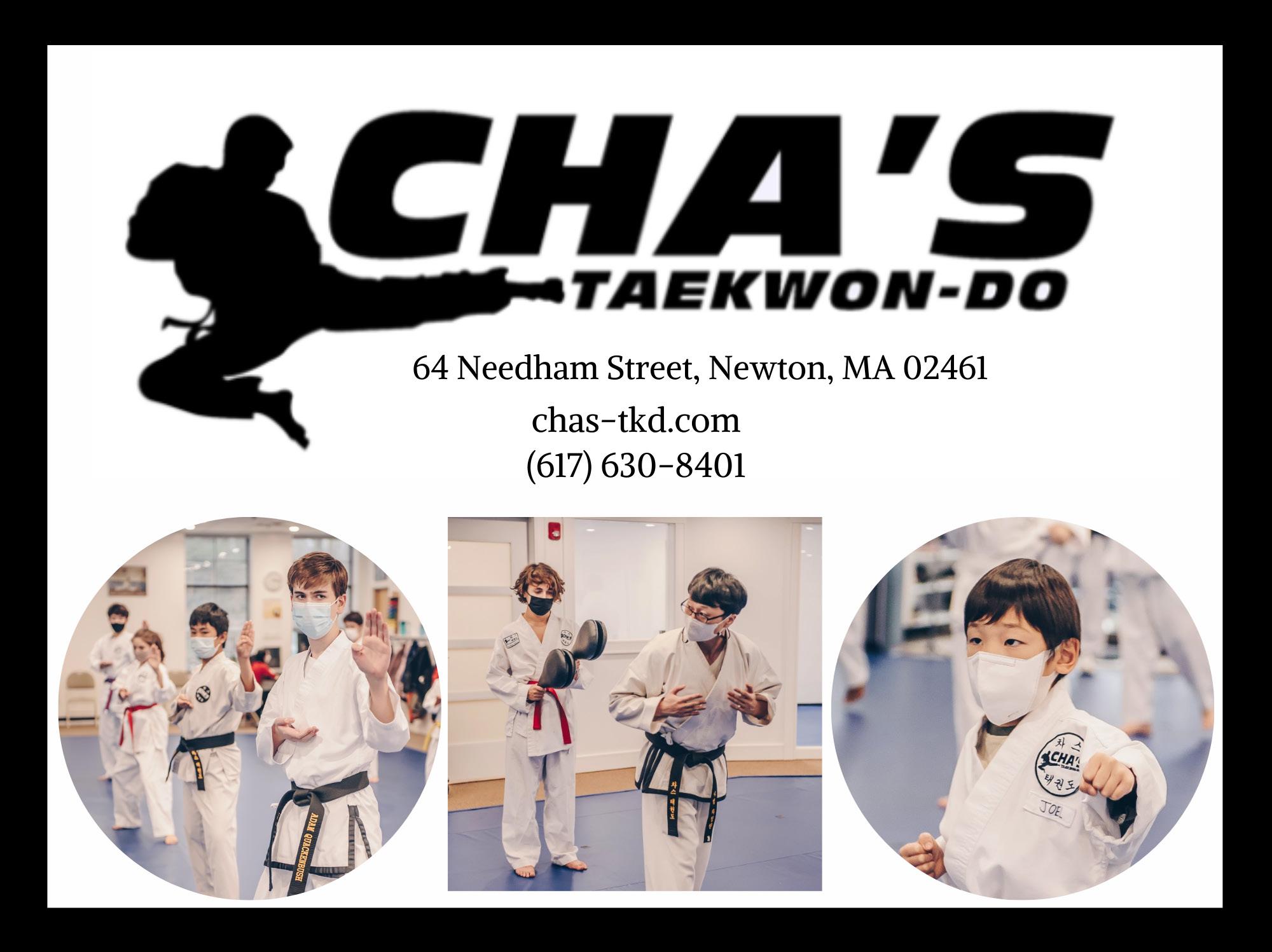
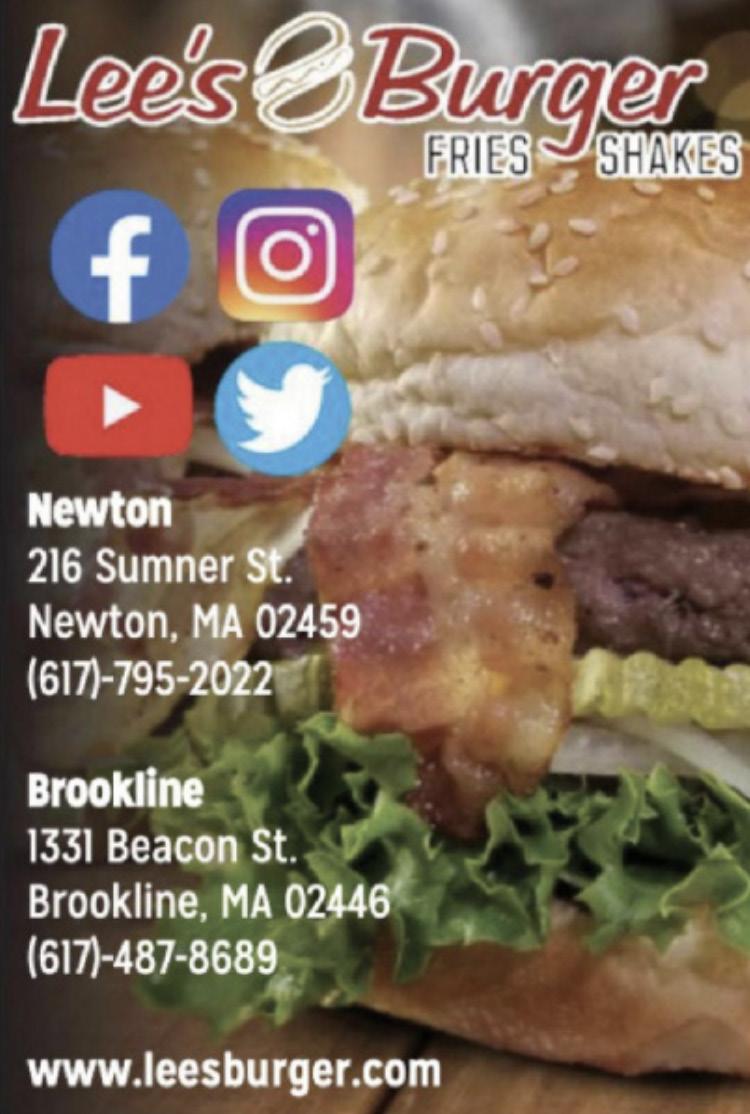
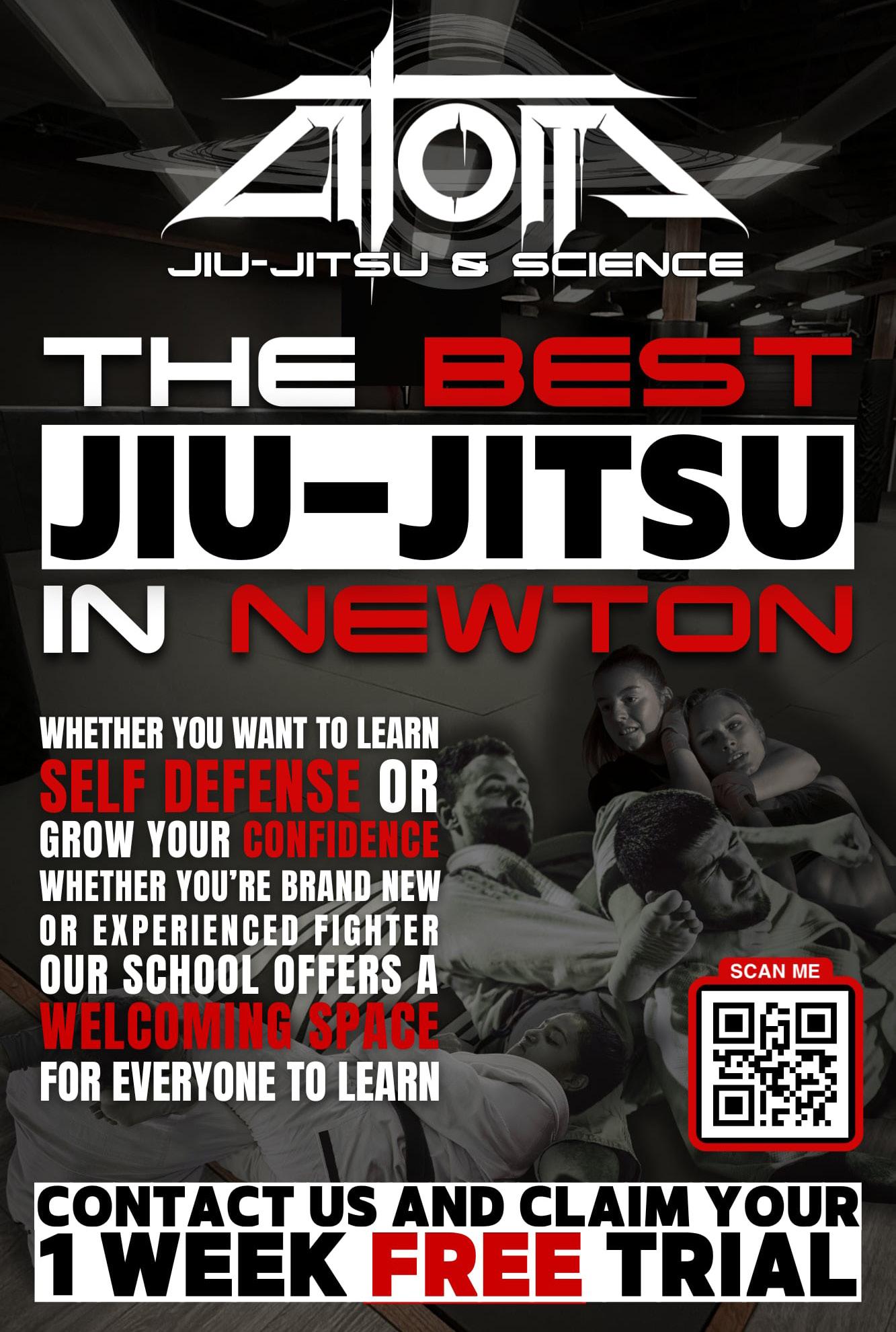
The Hyde Center hosts a series of outdoor concerts and movie screeenings for the Newton community and beyond.
By Laura Feng
From movies at Crystal Lake to Queer Culture Day to the Linda Plaut Festi-
val of the Arts, the Hyde Community Center (the Hyde) in Newton Highlands has sponsored events for various groups in Newton since its founding in 1988.
Over the summer, the Hyde hosts weekly Friday night events open to the public, including an outdoor concert followed by a movie.
John Rice, executive director of the Hyde and originator of the summer concerts, said that the weekly events began developing into what they are today nearly 20 years ago.
“We started doing these concerts in 2006 [when] we did one concert,” he said.“Next year, we did two concerts, and I think by the third year, we were doing a concert every Friday night, all summer.”
Rice said that the weekly summer events provide an opportunity for Newton residents to maintain a sense of community over the summer.
“Some people have the viewpoint that in the summer, Newton is completely empty and everyone goes away,” he said. “What we found after 19 years is that there's a large audience of people who stay in the city, who like the entertainment and like to … be part of the community and enjoy a night together.”
Newton resident Alice Fang said that attending the summer events with her family has allowed her son to connect with his classmates outside of school.
“My son met his classmates in Bowen school and they greeted him during the event … they were playing in the playground together,” she said. “We didn’t ask to go to the event
"e community is more than just your neighbor. It is the town, and it is the towns around you.
Garrett Van Sicklen Hyde Center Board Member
together, but we met each other at the event.”
As a nonpro t organization, the Hyde relies on its partnerships with local organizations for funding, their largest sponsorship being "e Village Bank.
Susan Paley, retired senior vice president of community relations at "e Village Bank, said that the bank has supported the Hyde’s summer concerts since they rst came about in 2006.
attracted participants from all over Newton and neighboring towns, fostering community within Newton and beyond.
“A lot of people think, ‘this is Newton Highlands community center; therefore, it's for Newton Highlands people.’ Really, it's citywide. We [also] have people from neighboring towns that come over,” he said. “"e community is more than just your neighbor. It is the town, and it is the towns around you.”
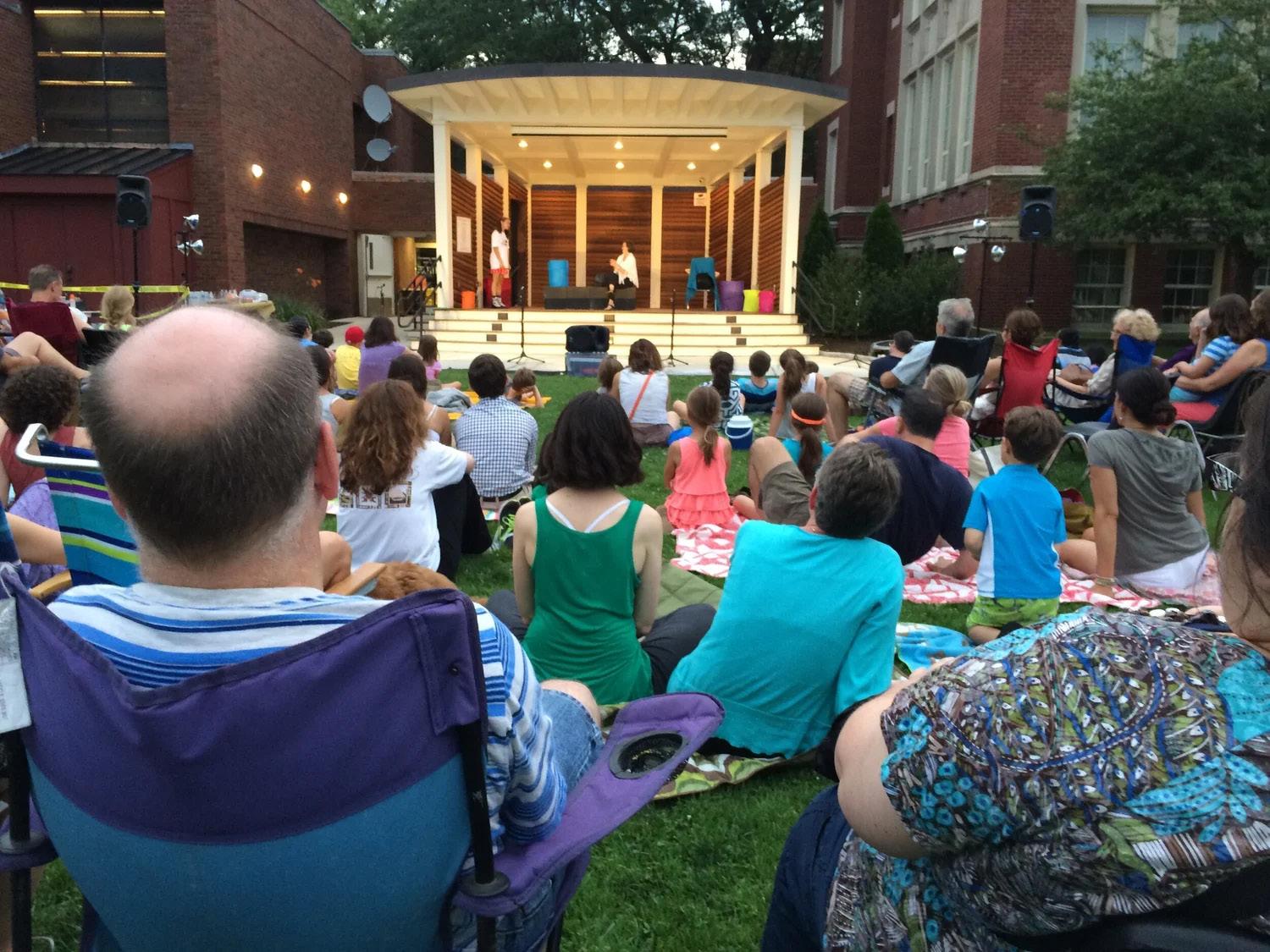
“[With] John Rice's involvement, it was just a natural t for a bank that's called "e Village Bank [to sponsor them],” she said.“"ey concentrate on the villages, and the homeliness of the villages.”
Amy Werner, community relations ofcer at "e Village Bank, said that the Hyde’s e orts to bring attention to the arts in Newton compels the bank to continue to support them.
"e work that's done at the Hyde Center to bring arts to people in their neighborhood aligns with our core values, and that's why we continue to make contributions to organizations like the Hyde,” she said.
Garrett Van Sicklen, board member of the Hyde, said that the Friday-night events have
Paley said that the events are popular because they are structured to appeal to a wide demographic.
"ere are so many people that think they have to go into Boston to enjoy arts and culture and fun... We have it all right here in Newton.
coming,” she said. “"ere's always a wide range of talent coming to the shows … for example, it was nice to have the Caribbean band playing.”
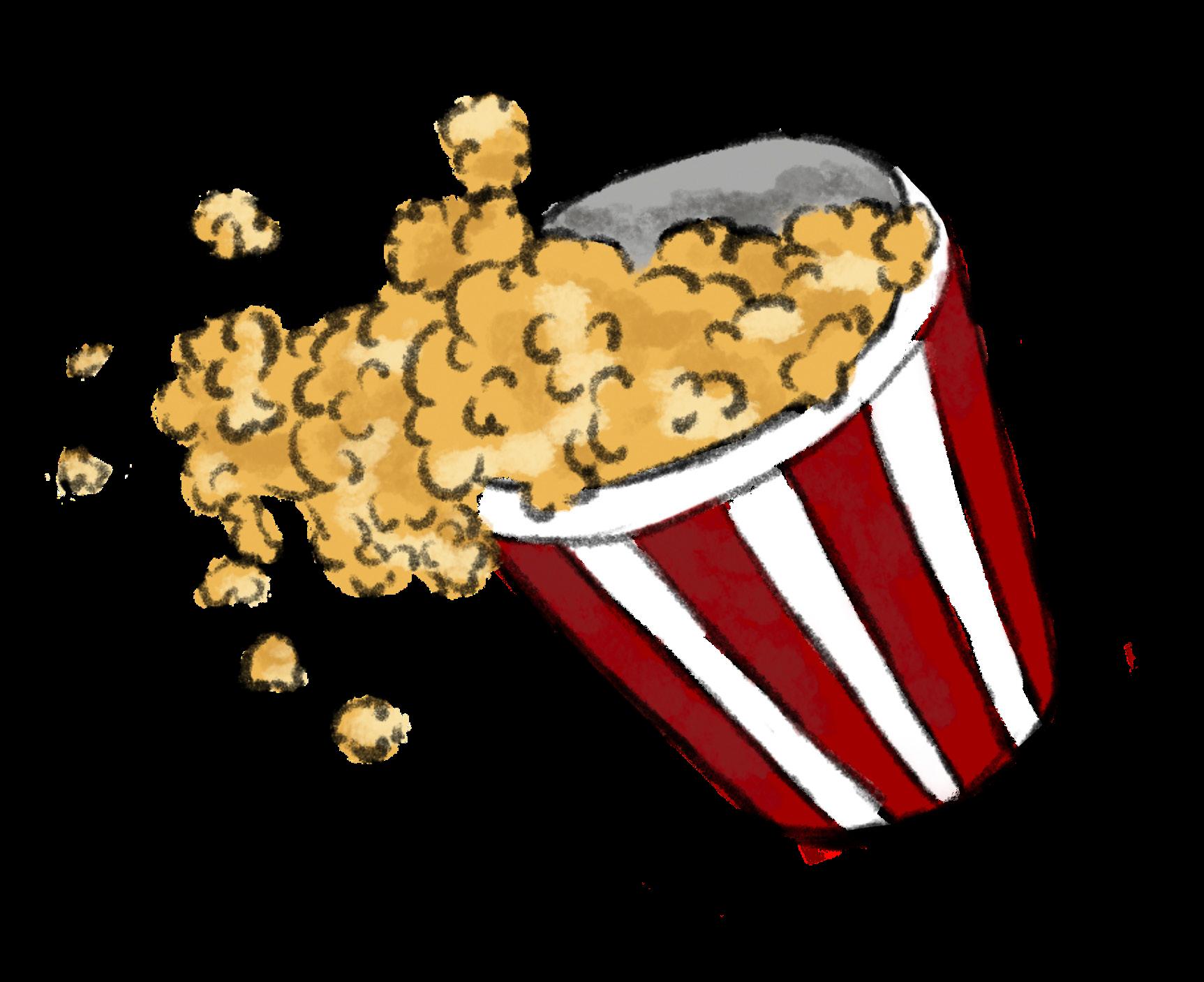
“["e events] draw from other parts of Newton and outside of Newton because of the fact that it has that variety,” she said. “It has the movie, it has the music [and] it has the opportunity to eat outdoors and watch your kids dancing and having a good time.”
Newton resident Shatoya White-Gay has attended the summer concerts for the past eight years, and said that she appreciates the Hyde’s continuous e orts to foster inclusivity.
“"e events have de nitely increased [in] diversity in the pool of people that they have
Rice said that he selects the bands himself and that there is always high demand for bands to play at the Friday-night concerts.
“A number of bands have told us that they've performed at our concerts, and then they've got bookings for other other activities [like] weddings and performances,” he said.
Paley said that the Hyde brings the liveliness and diversity of the city of Boston into the suburbs of Newton.
“There are so many people that think they have to go into Boston to enjoy arts and culture and fun,” she said.“We have it all right here in Newton.”
Paley said that engaging with one’s community is especially important given the current stressors that many people encounter every day.
"Central gathering is very important, particularly right now in our country where there's divisiveness and well-placed fear about what tomorrow is going to bring,” she said. “At the Hyde Center, that doesn't exist. It's a funlled and sun- lled way to enjoy summer with other people in our community.”



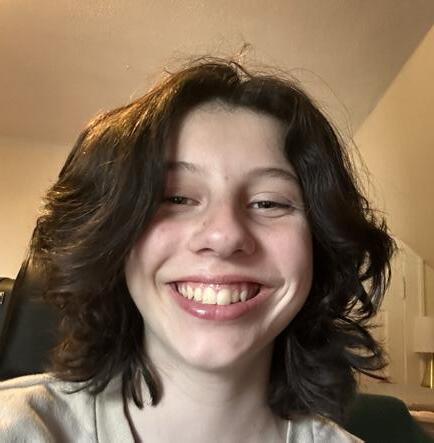
'29
Chestnut Hill School Summer Camp CIT
"Being a CIT helped me not explode. There wasn't a single time when I yelled at a kid. There were times when I had to walk away for a second, breathe, then deal with it. This job helps me with being calm in high emotion situations."
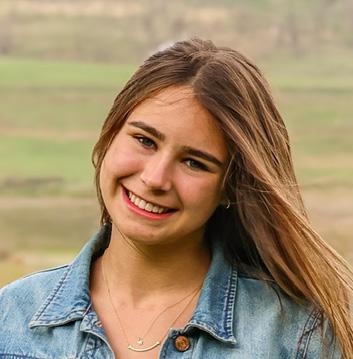
Camps Kenwood & Evergreen camper/leader
“I think that camp has made me so much of who I am. Whether it's being a better sister or a better daughter or a better friend … I've been able to come home to some hard challenges and face them in a way that I think is much stronger.”

Why is your role at camp important?
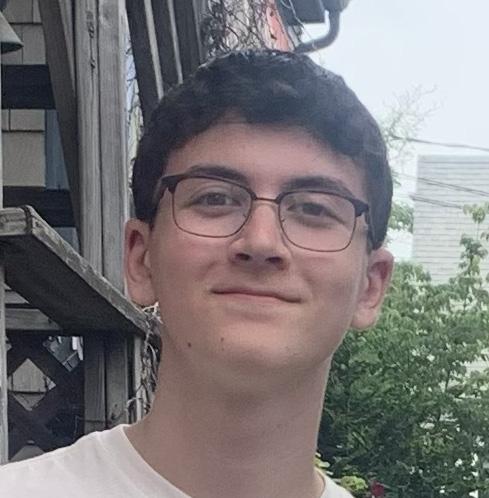
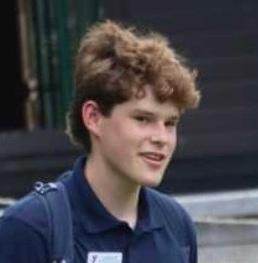
JCC Camp Kaleidoscope counselor
“When your campers grow up, they will remember camp. They will remember their counselors, and because the camp is so special in that way, you have to do the most to make it that magical, nostalgic memory.”
“My biggest role models have been my counselors at sleepaway camp, and I came to the point where I was done needing a role model … I wanted to return the favor and be that role model that I’ve always looked up to for another kid.”
If senior omas Connolly isn’t "uently speaking Chinese, he can be found exploring di erent genres of music, playing jazz on his saxophone or lifeguarding at Crystal Lake.
His passion for learning and sociable personality make him a hard worker and friendly face everywhere he goes.
nolly, his older brother, said that Thomas’ love for learn
edge and smarts he has with his various classes … [When he’s] coming home and talking about them, it’s really amazing to hear,” he said. “It shows that he's enjoying school to an extent where he can get a lot from it and learn a lot.”
One of omas’ favorite classes is Chinese. Although he began studying the language in middle school to be di erent from his brother Liam, who was taking Spanish, he quickly fell in love with the language and its unique writing system. Chinese is now a major passion of his, which he said has helped him connect with others.

anything and everything forever,” she said. “With him, knowledge is power. When he learns something new, he wants to learn a lot about it.”
omas also channels this passion to those around him. Sean Steck, omas’ cousin, said one amusing example is that he even trains his dog in Chinese.

“He'll be able to tell his dog to sit and speak [in Chinese] … He loves to showcase that,” he said. “He'll always have a new thing that he taught his dog every time I see him, which is really cool.”
about it.
With him, knowledge is power. When he learns something new, he wants to learn a lot
Patty Connolly Thomas' Mother
“Regardless of what other language you're learning, [language] is ere's populations of people, especially in -
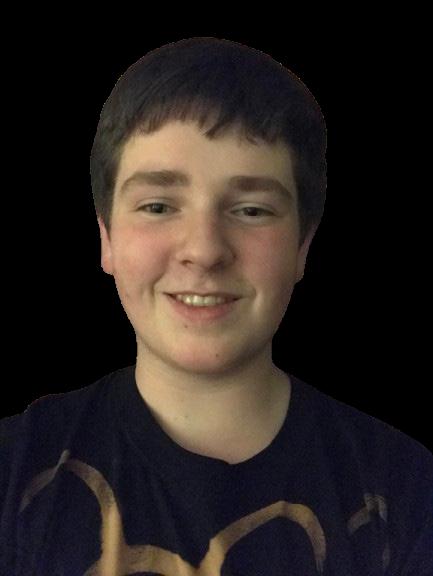
lingual, and being able to bridge that [gap] is something that's insanely
Patty Connolly, Thomas’ mother, said Thomas has shared hisnese with her, having takenous Chinese restaurants.
Patty said his innate curiosity is what drives his

ways been interested in learning
Chinese isn’t the only thing omas is passionate about. Over the summer, omas has been working up to 50 hours a week as a lifeguard at Crystal Lake.
Rosie McLeod, omas’ head lifeguard, said he is tremendously dedicated to the job. is year, he was the only lifeguard at the facility to make a save.
“He gets in the water 15 or 20 minutes before everyone else just to practice his skills, always trying to improve his lifeguarding abilities,” she said.“Making a save … really shows the person he is. He's very observant and executes his lifeguarding abilities very well.”
Gordon Hall, omas’ friend and fellow lifeguard, said in addition to being an excellent lifeguard, omas is renowned within their lifeguard team as an unconditionally positive person.
“He goes out of his way to make sure everyone is having a good day of work, everyone's in a good state of mind,” he said. “Every time he shows up to work, it's always a positive energy … It's so refreshing [because] I can come into work in a bad mood, and [he] can greet me with a smile.”
omas is considering pursuing a career in music. Although he plays saxophone and
is involved in South’s band, omas said he most enjoys music composition and audio engineering.
“When you're either writing music or you're doing a solo, you're collaging di erent pieces of what you like,” he said. “You can take what you like in in"uences and you can make it your own.”
At South, omas has taken a music production course each of the last three years alongside his friend senior Madi Neel. Neel said omas approaches music like all of his other hobbies: with diligence.
“He puts so much time and e ort and care into the work that he does in those classes, as well as other classes I've [had] with him over the last six years I've known him,” he said.“[He] takes his schoolwork very seriously.”
Whatever lies ahead for Thomas, McLeod said she’s con dent that omas’ hardworking and sel"ess personality will take him far.
“[He’s] a very well rounded person, and he is very kind to every single person he meets,” she said. “He loves to share all of his niche hobbies with everyone, and everyone loves that about him. He's a very unique kid. I think he's only going to be successful going forward.”

The Roar follows four seniors with different interests as they navigate the college application process. Their identities will be revealed as they make their decisions.
By Andrew Petrilla
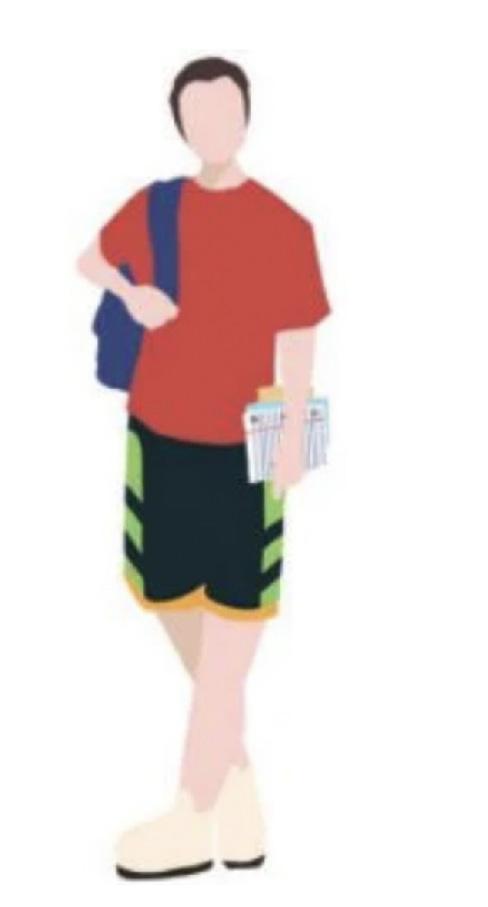
Like her two older siblings, Alice* is choosing to veer away from the more traditional path of South graduates and is instead planning on going to a military college. Hearing about her sister ying a military helicopter and her brother in the Marines helped inspire her to follow in their footsteps.
Next fall, she hopes to attend West Point or the US Naval Academy.
Military academies are similar in many ways to other colleges; however, they are run like the branch of the military that they are preparing students for, and there is daily physical training. Like many other prospective military students, Alice admired the rigor and organization.
“I love that every aspect of you is chal-

Thanks to her background with the debate team, Kate* has become interested in government and public policy. Above all, she hopes to study something that will help her make a positive impact on others.
“I want to have a career that is impactful [to] other people's lives, which is why I'm very attracted to a career where I can make state-level or nation-level changes,” she said.
In freshman and sophomore year, Kate disliked science, to the point of planning on dropping it senior year. But after taking biology as a junior, she developed an interest in the subject. Her interest in biology led her to consider public health as a career choice.
Kate is also considering minoring in
When Mark* started playing soccer at two years old, it felt like a burden. Even when he grew to enjoy the sport in middle school, he never took it very seriously. In eighth grade, however, Mark’s perception of the game began to change.
“I kind of realized, as I grew into the game and I started supporting a team in England, that this was something I wanted to do long term, even after high school,” he said.
Now, entering his senior year, Mark plays for the boys' varsity soccer team and is hoping to get recruited to play soccer in college.
e sports recruitment process can be extremely daunting for athletes. For Mark, it truly began on June 15 of his sophomore year, when college recruiters started to focus on his
lenged, from your physical aspects to education, and just being forced to withhold a higher standard,” she said.
Military academies are also completely free, but in return, graduates are commissioned into a branch of the military for a minimum of "ve years.
e application process for Alice also varied greatly from that of other schools; she believes that the intensity of the process makes it more di cult than that of other schools.
“It's de"nitely a harder application process, I would say, than most schools, because of all the things you have to pass in order to qualify,” she said.
Firstly, she needs to obtain a congressional nomination from her Representative, Jake
Through numerous South Stage productions, Liam* has discovered his love for musical theater. He hopes that one day, he will be able to star on Broadway.
“Singing something and using my voice is something that I'm very passionate about,” he said.
Next year, Liam is planning on taking the next step towards his goal, as he is preparing to go to college for musical theater. His admission process will largely be similar to that of other schools, except for one key di erence.
“I have to "lm my pre-screens, or a preliminary round of auditions — video auditions — for colleges [to] review,” he said. Typically, theater programs require short
gender studies or Spanish, but she is still unsure. Currently, her top schools are Tufts, Wesleyan and Barnard. She was drawn to the adaptability and variety of courses that they o er.
“A exible curriculum is really important to me,” she said. “I'm not totally sure what I want to do yet, and I de"nitely value having freedom to explore.”
She was deterred from some schools she was originially considering due to the limited number of classes students could take per term.
Like many of her peers, Kate has felt the stress of the application process. e next step for her will be the personal statement, something that she has found particularly daunting.
“It's so much pressure,” she said. “I'm
recruiting class.
To get noticed by the recruiters, Mark had to send formal emails, create short videos exhibiting his skills and let them know which tournaments he was playing in so that they could watch him.
Mark said that the ultimate goal is to showcase one’s abilities and impress the recruiters enough to get selected.
“You want a coach to see you play in person,” he said. “So your entire junior year, basically, that's what you're trying to do.”
Mark is now on the tail end of the recruitment process and is "guring out where he stands with di erent schools.
Currently, Mark’s top schools are Bowdoin, Skidmore, Oberlin, Macalester and
Auchincloss. To be selected as one of the 15 students he nominates per academy, she has to write an essay explaining why she wants to go to the military academy, submit her transcript and attend an interview with him.
She will also have to pass a medical exam and a physical assessment. Alice said that, while it was di cult, she enjoyed the training for the physical assessment.
“It's been pushing me to stay on top of things and make sure I'm really getting prepared the best I can,” she said.
While her process might be di erent than most students, many of her emotions regarding college are the same.
“I'm very excited for the next chapter of my life,” she said.
videos demonstrating applicants’ singing, acting and dancing abilities.
e next step for Liam in the application process will be writing his supplemental essays — he has already completed his personal statement.
While the application process has been far from easy, Liam said there are some aspects that he actually "nds enjoyable.
“It can be very exciting, looking up a website of a school, being really interested in the clubs, or being really interested in what they have to o er, what their program is like,” he said. “You can see yourself there.”
Liam hopes to go to an urban school with an exemplary musical theater program. Aside
supposed to tell them everything that's not in my scores and classes in 650 words.”
Despite the stress of the application process, Kate feels excited for college as the next chapter in her life and an opportunity to pursue her passions. Furthermore, she is con"dent that everything will work out in the end if she just pushes onward.
“I actually do feel pretty comforted that I think it'll work out the way it's supposed to,” she said.“Something that touring has really shown me is even if there are lots of things you don't like about certain places, there's something to like about everything.”
*Names changed to protect students' identities
UMass Dartmouth. One important quality that he looks for in a school is athletic rigor.
“I want to be in an environment where I'm competing with the very best players and getting better with every single practice, every single game,” he said.
Ultimately, Mark does not plan to play soccer professionally after college. Instead, he is hoping to go into business or economics, subject areas that he sees himself being able to realistically make a living on.
“I think in terms of career choices, what's going to be most important is what's going to have the greatest ability to support me "nancially,” he said. “What's a realistic career choice that's going to set me up after my four years of college?”
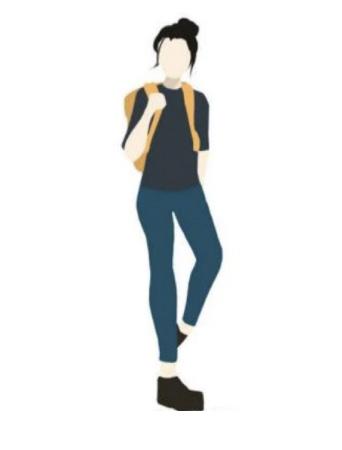
from his studies, the social scene is extremely important to him.
He wants to make sure that wherever he goes, there are lots of activities nearby.
“I'd love to be right in the city,” he said. “I want student life to be a big part of it.”
Liam hopes to create bonds and connections with other students, so community and environment have been very important to him during the research process.
As college rapidly approaches, Liam is feeling both enthusiastic and a little apprehensive about starting something so new and di erent.
“It's going to be tough to be away from my family,” he said. “But I'm excited.”
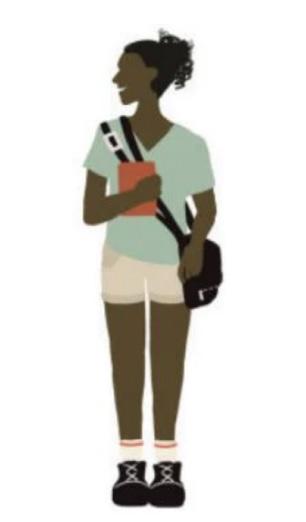
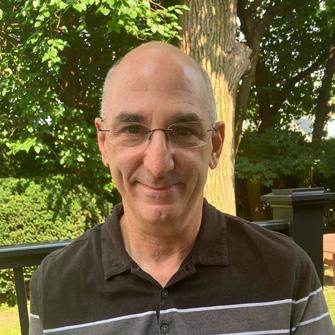
One of the ne joys of my summer vacation was having a picnic in Toulouse, France, with my wife and her six school chums from middle school, all but my wife still living in this beautiful pink city, and all of whom she has stayed in close touch with for the past 40 years.
"e six of them have stuck together through her every-other-year visits to France, letters, phone calls, and now WhatsApp. I love to see her giggling while she texts these people.
Every visit to Toulouse includes a visit with the group, usually at the downtown apartment of two of the pals who married each other, but this time we had a picnic.
While we sprawled out on the lawn at the Jardin des Plantes, with baguettes, cheese, grapes, quiche, a peach tart, potato chips that have not yet been mastered by the French, and ubiquitous Coca-Cola, I watched and enjoyed from my spot on the side my wife’s friends asking my daughter about her social life, the group in turn laughing at silly or important things that I didn’t understand quickly enough to engage.
Every visit, I plan for my French to be better than it is, and after a period of time I invariably surrender to my incompetence and try to gather in what I can from what I see, not what I hear, freed then into the easy joy of seeing my wife feel so much at home with people who have known her since she was 12.
Her friends’ jokes are so much funnier than mine when she is herself in that special way that you can be with friends of your youth, people who know you better than anyone else and still like you; they remember you when you were unsure and foolish and keep holding you in.
Long-lasting friendships have to begin somewhere, and they rarely begin with a dedication by the friends themselves that this thing they are making will be long-lasting. Yes, it may just happen, but it takes work also. I have several friends with whom I’ve stayed in touch since our middle-school days, and although my high school’s Class of 1981 Facebook page has kept me alert to the goings-on of many others, the few that are still in my life will be there even longer, too.
I called one the other day while dealing with some troubling family news for the only reason that I wanted him to hear my voice and I wanted to hear his, wanted him to share my ache, which he did.
We were mediocre students together in Mr. Link’s eighth-grade science class, and we bound ourselves to each other with the ironic nickname “Top Scholar,” the name for the brand of pencil that we both used to take notes that neither of us studied e ectively enough. We still call each other “Top Scholar” in texts and on the phone.
How you build your friendships is up to you, and how many friends you stay in touch with long after the end of high school is also up to you. It’s the same for the sta here. We will hold onto the friendships that have sustained us till now, just as we try to keep ourselves open to new friendships.
But we also know that the deep ones that many of us still hold onto from our own school days are in a special corner of our lives, and we want this for you, too.
By Leah Chin, Ella Chung & Isabella Yu
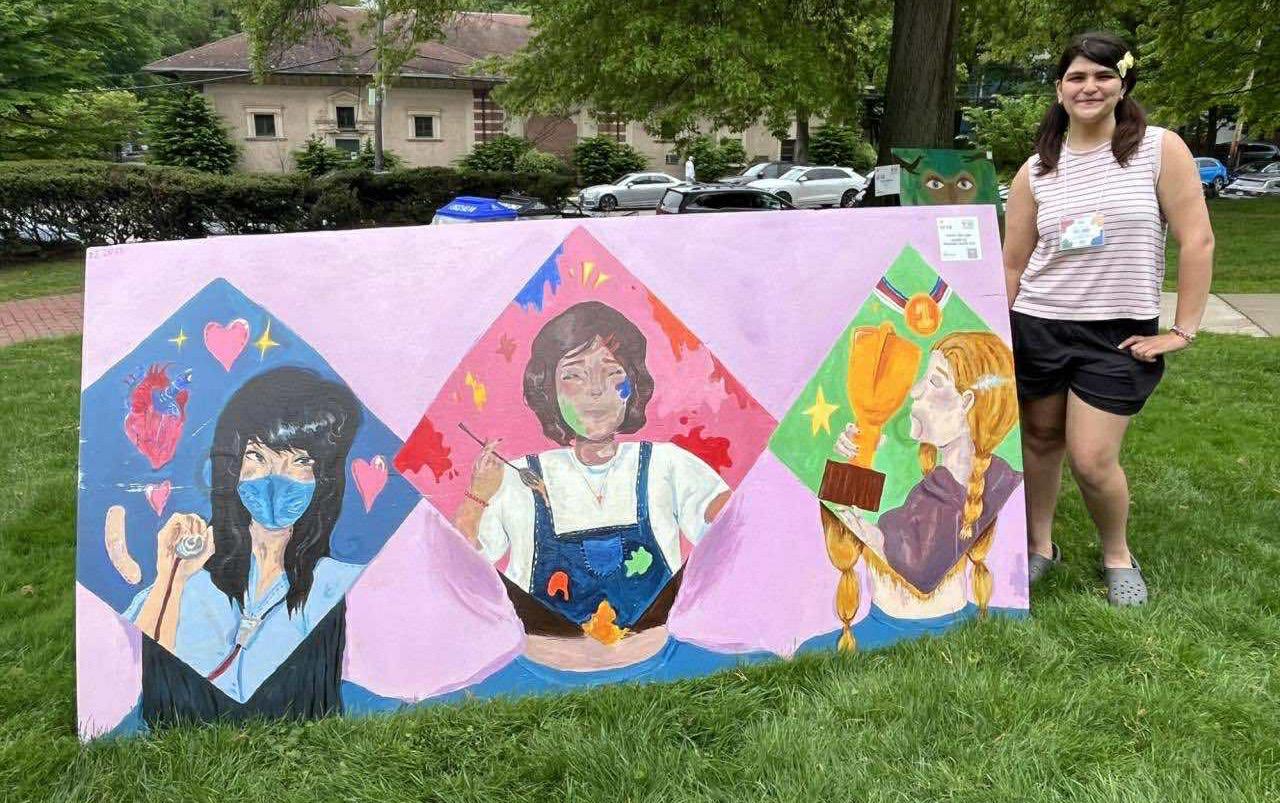
It’s common to see student murals while walking through South’s hallways — but now, similar murals are also outside for the whole community to enjoy.
"is June, the SHINE program, which is run by Newton’s Cultural Development Department, put up murals throughout Newton painted by local student artists.
North junior Del Jain, one of the artists with work on display, said she appreciates the chance to share her art with her peers, especially after talking with some from outside the area.
“What I've heard from a lot of [nonNewton residents] is that their town liked art, but it wasn't as widespread as it is here,” she said.
While working on her project, Jain said that she faced some challenges with instruction from the program organizers.
“At the start, at least with me, they said, ‘change this,’‘change that,’ or ‘what does this mean?,’ ‘What does that mean?’” she said.
“I think they were on the fence about me, because they wanted simpler designs … but they wanted to be inclusive, I guess. "ey kept emailing until it was what they were looking for.”
Every year, the organization chooses a new theme; this year, the theme was “Future Visions.”
Sophomore Lucy Hurwitz painted an eye with the iris split into six di erent sections. Hurwitz said that the di erent sections in the iris depict what she wants the future to look like.
“I was trying to capture the idea of acceptance and working towards a better future where everyone could be a part of the future,” she said. “What one person sees might be different than how someone else does.”
A SHINE artist for the past three years, Hurwitz said she enjoys having the opportunity to bring a new perspective to art.
“A lot of times when people think of art, they think of a single view. We only really get things from adults who have maybe forgotten what it's like to be a kid or a teenager,” she said.
“As a teen artist, it's nice to have opportunities to let people see what I've been doing.”
North seniors Ana Senoo, Carmen Ma-
tos and Chloe Goldhaber worked together on a mural depicting three little girls looking up into mirrors of themselves living out their dream careers.
Senoo said that these little girls were meant to represent each of the artists.
“We thought that we could come up with some careers that are fairly ‘normal’ … that would be di cult for us to reach without stigma due to our general identity of gender and race,” she said.
“We wanted people to realize that their dreams are common and shouldn’t be shut down and replaced with things that they’re told are more attainable for them.”
In being one of the only groups among this year’s muralists, Senoo said that she, Matos and Goldhaber were able to work more e ciently.
“We really liked being a group in the project because it allowed us to focus on our own ‘characters,’” she said. “It also gave us less space to work on, which somewhat sped up the process.”
Senoo said that creating the mural in a group setting was also challenging at times.
“It also became very di cult nding times to come together to paint it since we were a group and had to work around three of our schedules,” she said.
“Because we weren’t always there painting together, we would get worried about making a change in the painting in case not everyone loved the idea.”
Before being mounted in June, Newton’s 2025 FunFEST presented the murals painted by all the SHINE artists. Community members got to ask the artists questions about their artwork and paint a community mural.
Ahead of the festival, local artist Jill Strait said that she created and sketched a design based on the theme of “Future Visions,” and at FunFEST, community members helped paint the mural.
"e mural says ‘Growing the Future in Newton.’ "is refers to the theme and the design relates to Newton being the Garden City,” she said.
“"e sun ower represents sun and light; the seeds refer to planting for the future; the rainbow symbolizes hope, promise and diversity; and the robins represent looking up and ahead, new beginnings, hope, joy and fresh perspectives as we look towards the future.”
South sophomore William Neuman said that he was impressed with the artists’ skill when he saw the murals.
“"ey’re really nice,” he said. “It's a good opportunity for students to show their art skills, and they’re really nice to go around, and they represent the city. It shows that there are a lot of talented kids here.”
‘25 South graduate Zoe Chung said that the murals were a great way to showcase students’ creativity and passion about this year’s theme.
“Some people envision themselves in their future jobs, while others think about what they hoped the future would look like as a community environment more holistically,” she said.
“It is programs like these that allow students to showcase their creativity as a community together.”
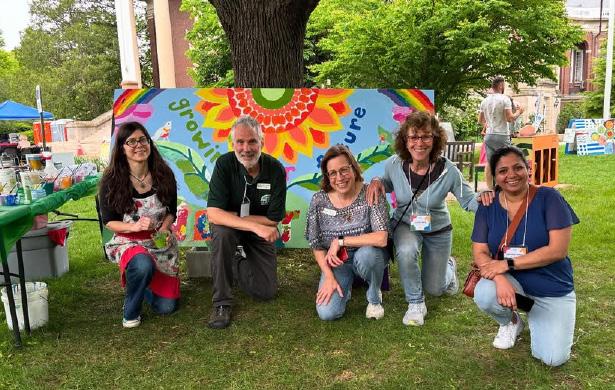
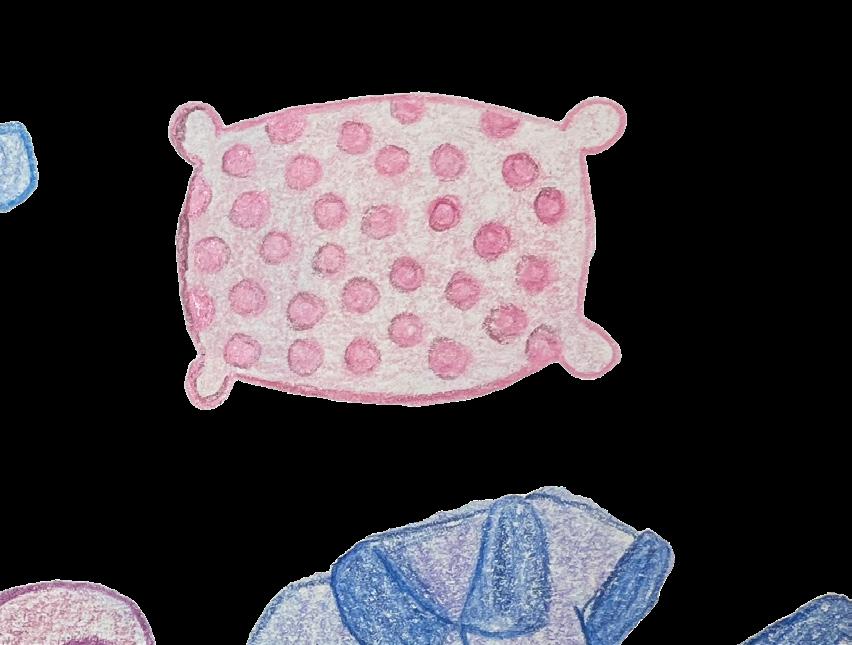
The girls' cross-country team builds community through several bonding activities during the summer.
By Amalie Martin
Wrunning uphill and feeling tired, moving forward is a mental challenge. Every stride taken is an active choice to push through discomfort and self-doubt.
However, for many girls on the South cross-country team, the sport is worthwhile because of the community that surrounds it. e motivation to keep running in the blazing September sun through a challenging course comes from the supportive team environment.
Senior Eva Falkenstein said that the most enjoyable part of the sport is the team itself.
“Everyone is so kind and supportive of each other,” she said. “Even though it's an individual sport, everyone is there, constantly cheering for you and wanting you to perform your best.”
Although most fall sports teams "rst connect during preseason training, the girls’ cross-country team has several preseason traditions that strengthen the team’s bond and prepare them for the season ahead.
Captains typically plan a series of di$erent events: destination runs to Yogurt Beach and Crystal Lake, a team sleepover and several team dinners, including one special team dinner late in the season where athletes on the team can choose to dye their hair before the All-League meet.
Senior captain Sophie Hajjar said that these traditions are important to building a team culture.
“ e season goes by really quickly, and our "rst race is very soon after preseason, so it's fun to make the season last as long as possible by bonding in the summer and during the season to keep the team culture going when the season gets hard,” she said.
“I noticed that by doing all these activities together, it makes us much more comfort able with each other.”
munity and familiar faces that were helpful to have before entering high school.
“I remember when I was a freshman, I didn't go to any of the captain's practices over the summer because I was kind of nervous,” she said. “And then I did go to preseason, and then we had the team sleepover, and I remember wishing I'd gone to the captain's practices, and being really happy I went to preseason because everyone was really welcoming, especially the seniors.”
Sophomore So"a Stagno Gimenez said that feeling supported by the team makes it
or worried about sports because you’re doing it with people you already know,” she said.
Junior Izzy Monaghan said that as the season progresses and meets increase in stakes, shared team experiences help boost her con"dence.
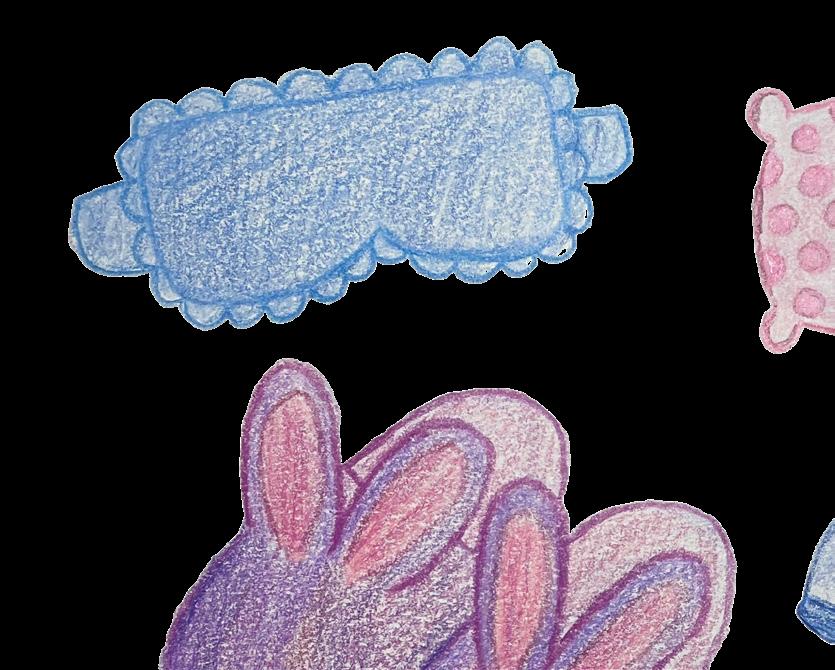
“When you have your friends that you've made throughout the season, [racing] feels less stressful because they're doing the same exact thing that you are. You know you can do it,” she said. “ ey help push you to be the best you can. I feel like I can do anything when I'm with my
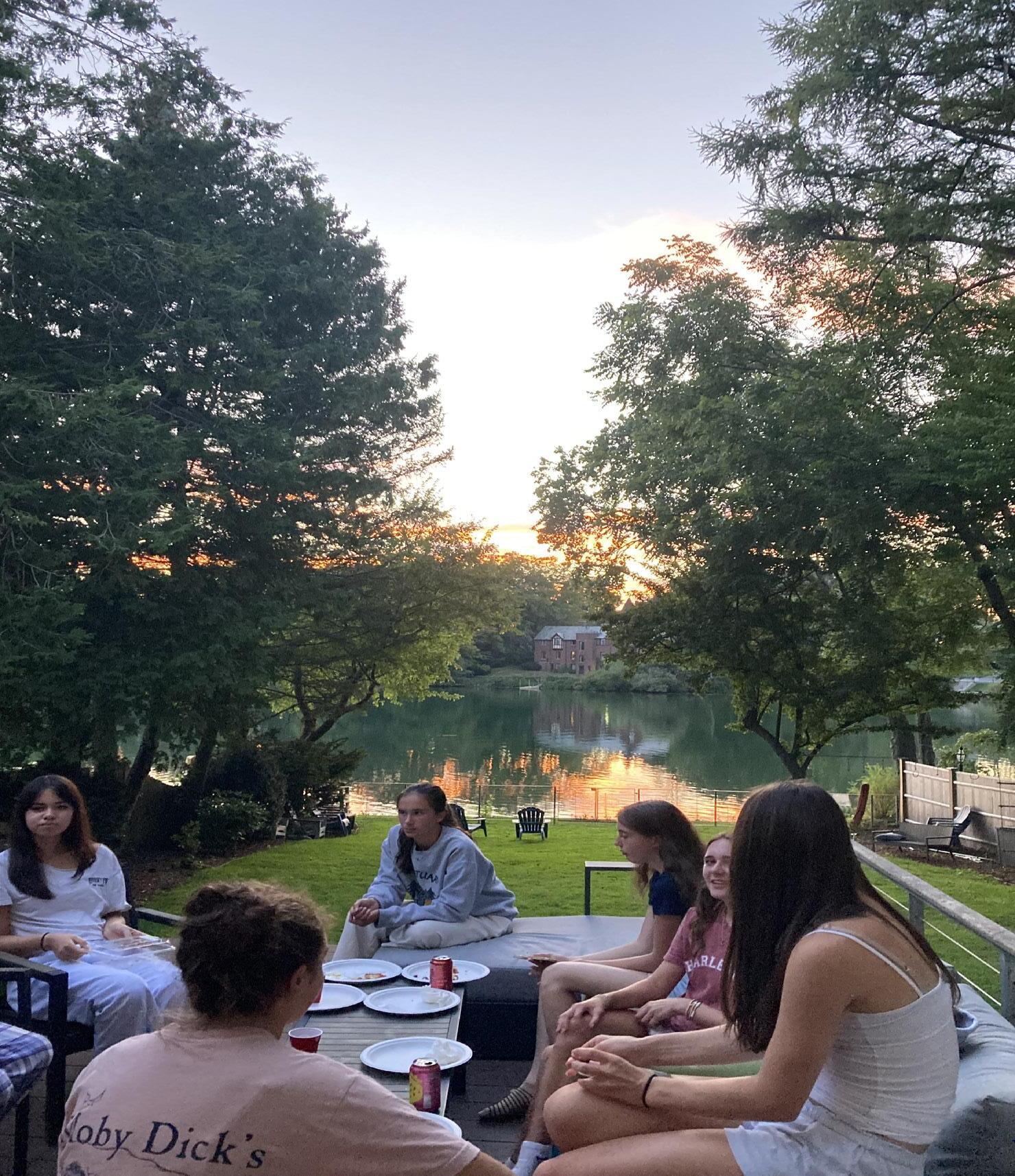
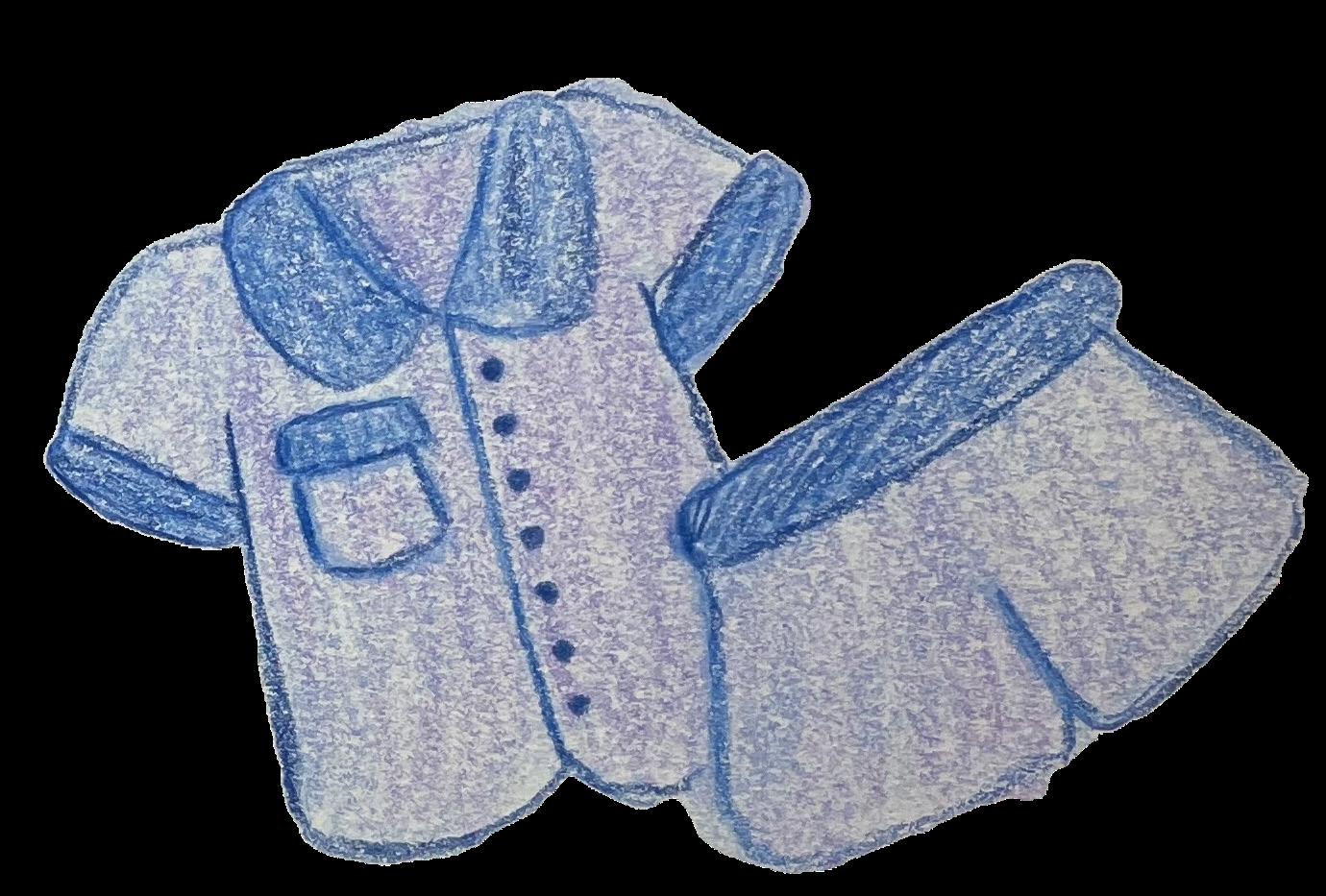
Cap tain Hannah Leese said the summer bonding activities gave her a welcoming com-
who are going to represent the team,” she said. e cross-country season runs from August to November, concluding with a "nal team “breakout session.” is session is similar to a normal team dinner — it’s a potluck style meal and team bonding event — but unlike most teams, coaches attend and lead

In these sessions, everyone is encouraged to rm themselves for their own accomplishments as well as teammates and coaches they’re particularly proud of, or people that have helped them through their season. e rmations” is a testament to the relationships built within the team throughout their season.
Despite a busy schedule and heavy course load during senior fall, McMullan said that she and the other captains are determined to schedule as much team bonding as possible.
“We love this team so much. We're all very dedicated and hard working, and this is just such a fun team to be part of, and such a rewarding sport that I think we will make time,” she said.
“We're going to do absolutely everything we can to make sure that everyone on the team feels supported and feels like a member of this team.”
To be a part of the team is to show up to a Friday hill-workout, solo-long run or chaotic meet, because the connection shared between the runners lies in mutual e$ort and a supportive community cultivated during preseason sleepovers and ice cream runs.
Senior Sydney Hanley said the bonding activities and overall supportive community have led to the team's achievements.
“I don't think our team would be successful without the amazing support that we have for each other,” she said. “And if you want to be the best students and best athletes, having this community is really important to do that.”
Mitchell Lookner Sports Editor
With hopes of making it to the next level in their respective sports, an increasing number of South athletes are switching to private schools to gain more exposure and further their development as players — a trend known as “reclassing,” through which students repeat a grade in order to change their graduation year.
Reclassed junior at Buckingham Browne & Nichols Omer Rabbi, a former member of the South boys’ basketball team, said that academics played a signi cant role in his decision to transfer.
His new school gives students more academic attention, and Rabbi wants another year to ensure that his academics are up to par with competitive colleges.
"e smaller class sizes at private school will help me a lot because I didn’t get enough support from my teachers at South,” he said.
"e boys’ basketball team, which won the Dual County League for the rst time in four years, lost four players to private schools, including Rabbi and reclassed junior Cainan Weeresinghe. Weeresinghe said that there will be more academic opportunities at his new school, Dexter South eld.
“I want a higher course rigor,” he said.“As a junior at South, I could only take two APs and a certain amount of classes. At Dexter, I’m taking ve APs and taking classes outside of the school, so there’s more variety to pick and choose what you want.”
Reclassed junior Olivia Whitaker, a member of the girls’ varsity tennis team two
years ago, said that she wanted to pursue her passion for tennis and take a gap year in order to hone her skills and development as a player.
“I wasn’t really that competitive in the tournaments [at South],” she said. “I wanted to see the level I could reach if I really focused on tennis for a year. I played four or ve hours every day, and it really helped to be able to focus on one thing.”
Private school conferences often contain
your coaches in the o season,” he said. “Now, I’m at team lifts every day, team practices and individual workouts. "ere’s a lot more opportunities to get better as a basketball player compared to at South.”
Luke Murray, a reclassed junior at Mount Saint Charles in Rhode Island, who played for the boys’ basketball team last year, said that while playing time may not be guaranteed at his new school, there are more resources available
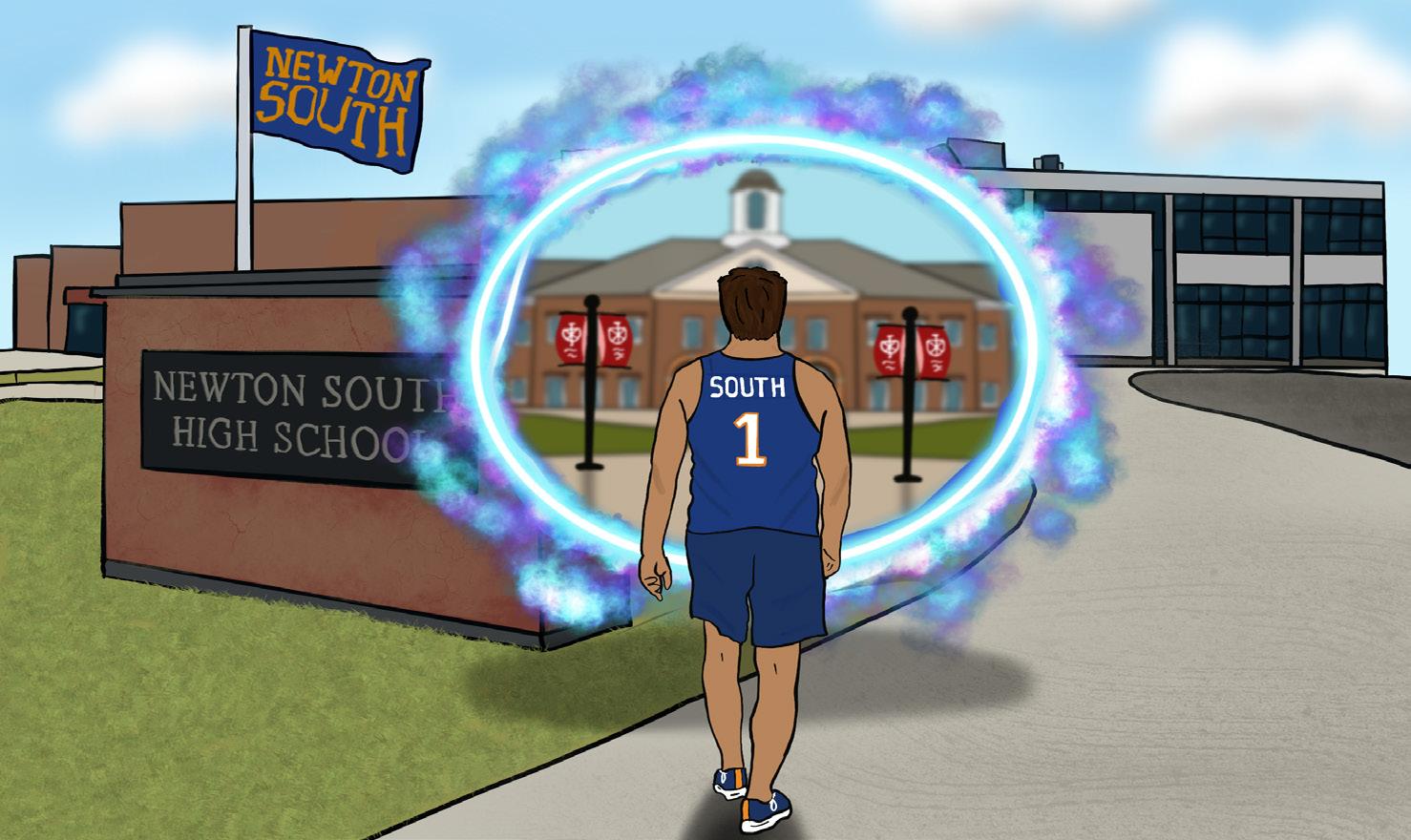
more highly-skilled players, Rabbi said.
“"e Massachusetts Interscholastic Athletic Association (MIAA) is like a secondary league compared to private schools,” he said.
Weeresinghe said that private schools have fewer restrictions for athletes in the o season, which allows for better player development.
“In the MIAA, you can’t work out with
for him to get better and earn his spot.
“"ere’s less opportunity to play, but more opportunity to earn your minutes because of the facilities and things that are provided to you,” he said.
Former assistant boys’ basketball coach Steve Country said that private schools are more lenient with coaches contacting players,
as the system is designed for college recruiting and exposure.
“We can only talk to players during the season and AAU,” he said. “"e private sector has a lag period where players can work out with their team and coach with college scouts in attendance for more exposure.”
Senior Matteo Lee, a member of the boys’ basketball team, said that an unhealthy trend has formed around transferring.
“It’s built a culture around leaving,” he said. “When guys see others leaving, they themselves think it’s okay to leave. It started with one guy leaving, then more, and now we’ve built up to the point where we have four people leaving [in one year].”
Lee said that because so many players are transferring, all the competition has moved out of the MIAA.
“I don’t respect the whole thing,” he said. “If everyone stayed in public school, that’s where the competition would be.”
Despite many potential bene ts, transferring to a new school can require a multitude of sacri ces. Starting a new school entails logistical changes — a longer commute, and in some cases, even wearing school uniforms.
But more di$cult transitions also arise, such as leaving friends behind and adjusting to a di erent school dynamic.
"is year, the boys’ basketball team will face a di erent set of challenges. With so many players transferring, Lee said that the team will need to be scrappy and ght hard.
“We’re going to need to work a lot harder because we’ve lost a lot of the talent that we had,” he said. “We have to be gritty and muck it up.”
What if the Boston Red Sox never traded Babe Ruth? "at was the question that haunted Red Sox fans' during the team's 86 year World Series drought after his trade to the New York Yankees. Sports are lled with “what if” scenarios like this.
In games lled with lucky and unlucky bounces and questionable calls made by the referees, being on the losing side can feel like torment as fans will consider any and all plays that the team could have performed better to potentially have won the game.
The 2022-23 Boston Bruins was the greatest hockey team in NHL his tory. "ey went a record breaking 65-12-5.
which they would win in overtime. If Marchand had scored to win Game 5, would the Bruins have won the Cup? Would they forever be cemented as the greatest team in NHL history?
Drew Bledsoe was drafted as the rst over all pick in the 1993 NFL
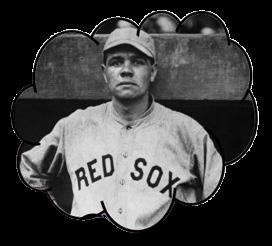
Going into the playo s, the Bruins were set to play a rst round match up against the eighth seed Florida Panthers, a team that barely squeaked into the playo s.
"e Bruins were up 3-1 in the series. As Game 5 wound down with the two teams tied 3-3, Brad Marchand had the puck on his stick on a breakaway, face to face with Panthers goaltender Sergei Bobrovsky.
With the entire Panthers team skating desperately to catch up, Marchand had a golden opportunity to win the series. "at didn’t happen.
Bobrovsky made the save to force the game into overtime, where Panthers player Matthew Tkachuk scored to force Game 6. "e Panthers would then go on to force Game 7,
was given the starting spot, one he wouldn’t relinquish until he su ered an ankle injury that forced him to sit out the AFC Championship game that same season.

draft. During his nine year career with the Patriots, he set franchise records for career passing attempts, completions and yards. Going into the 2002 season, he signed a then-record-setting 10-year $103 mil lion deal, but would suffer a devastating injury in just the second game of the season.
Tom Brady, draft ed in the sixth round of the 2000 NFL draft, was the fourth-string quarterback in his rst season.By his second, he moved his way up to second on the depth chart. Because of Bledsoe's injury, Brady

Bledsoe won the Patriots the game, earnmatchup the then-
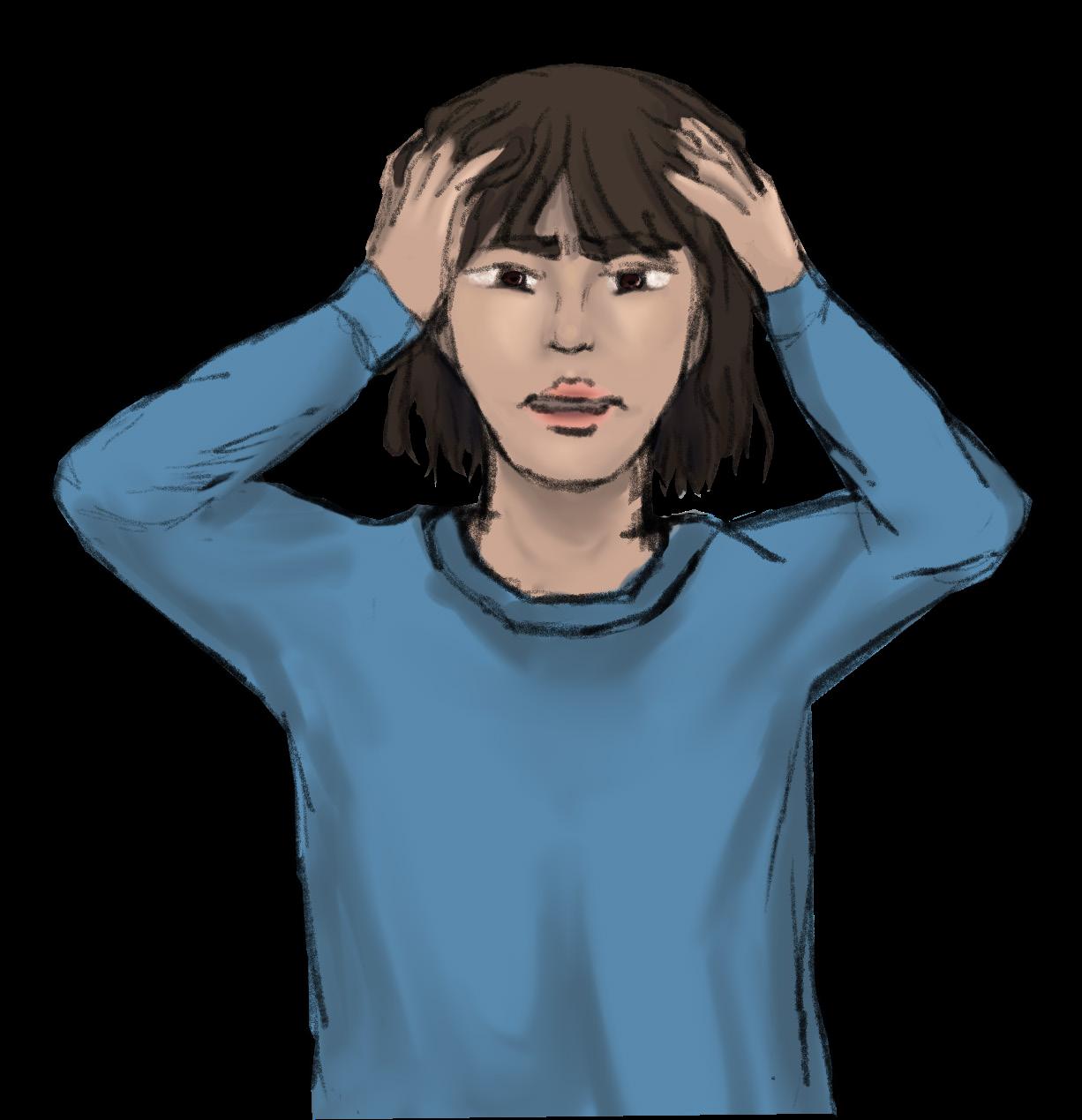
graphic by Seyoon Byun
St. Louis Rams. Although Bledsoe won the game, the coaches still trusted Brady more — and so Brady started the game, and had a careerning drive to win the Patriots their first Lombardi trophy in team history. Without Brady, would the Patriots have even made it to the AFC championship game? If Bledsoe had made the start in the Super Bowl, would he have been able to complete the gamewinning drive? Would the Patriots still win and embark on a 20-year-long dynasty — resulting in six Super Bowl
victories — with Brady at the helm?
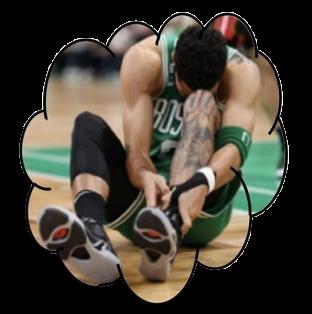
One of the greatest achievements in all of sports is to complete the reverse sweep: coming back from being down 0-3 in a best of seven series. It has happened only ve times across MLB, the NHL and NBA playo s. In the 2023 NBA playo s, the Boston Celtics were trying to become the rst NBA team in history to complete the feat against the Miami Heat in Game 7 of the conference nals, having been down 0-3. Unfortunately, Jayson Tatum turned his ankle in the rst half of the game, but Celtics fans can only wonder what would've happened if he had been healthy. Do they win the game and become champions a year earlier?
"ese hard-hitting questions continue to haunt Boston sports. "e curse of the Bambino still seems to be lingering around Fenway as the Red Sox have fallen into a pattern of trading away their best players — the Mookie Betts trade, and now the Rafeal Devers trade.
"e Bruins have yet to recover from Marchand’s missed opportunity and Game 5 loss as they are experiencing exponential decay.
"e Patriots are now experiencing a period of decline and rebuilding — the consequence of being led by Brady, not Bledsoe, to be one of the greatest dynasties in sports.
And the Celtics can’t have nice things as Tatum su ered an injury in the playo s this past season rupturing both his achilles and the Celtics’ title hopes, leading me to stare at my ceiling as I fall asleep, wondering about what could've been.
By Clara Borus
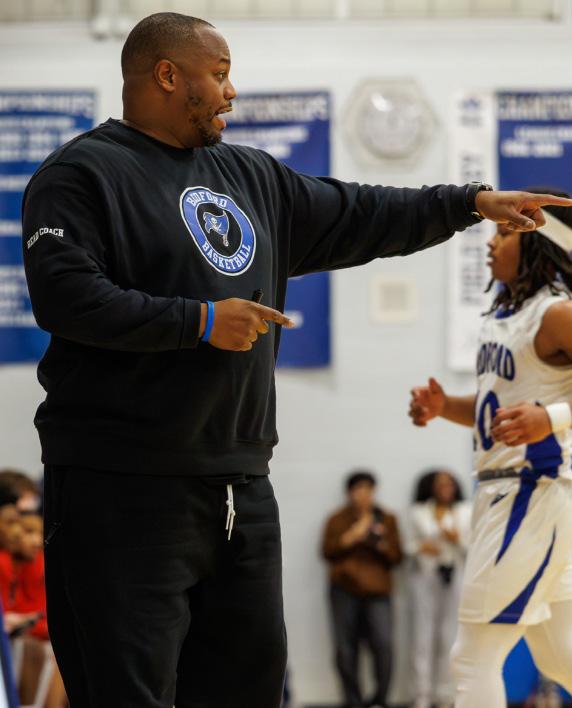
With his 13 years of coaching experience, Coach Halls will begin coaching the boys' varsity basketball team this winter.
What advice would you give athletes?
"I would always say you can control what you can control. If you're not working hard enough, that's a you problem. You have to be able to work harder, [change] your attitude."
"It goes back to my motto; energy, e ort and attitude are the key things, and all three of those things are things that the athlete can control."
""ey can control how hard they play. "ey can control their mindset. "ey can control how they react to certain things, like playing time, that they can't necessarily control it, but if they're doing the necessary things, the playing time will come."
What is your past experience with coaching?
"I’ve been coaching probably since 2011-12. A friend of mine was a head coach at Concord Academy. I went in with him as an assistant, and I kind of kept coaching ever since, at many di erent stops. Concord Academy was the rst stop. "en, I went to Brown eld School for three years, Southeastern Regional for three years, and I ended up at Bedford for the last six years total and four as the varsity head coach at Bedford."
What are you looking forward to about coaching at Newton South?
"I’m looking forward to the challenge. It's a division one program. I think there are many talented kids here, [there is a] very competitive sports arena within basketball, but also within the school."
"So I'm just hoping to add to the success that Newton South has experienced over the last few years. When I was in high school, I played against Newton South, so it goes way back for me."
This fall, Coach Mitjans will step into his new role as varsity football coach.
What are your plans or goals for this season?
"I think our big goal for our season is to do everything for pride. So our big goal, again, is building a team of community — that's something we're going to continuously kind of try to hang our hat on — is being proud of who we are as individuals, taking pride in what we do as a group, and then, like I said, the community to be proud of. So hopefully that's something that the players can really latch onto, and that the whole community can, too."
What is an important characteristic to have as a coach?
"I think it's patience. Our sta kind of varies in age, but we've got a bunch of young coaches, and I think it's not too far gone from all of us to remember what we were like as teenagers and high schoolers, and just remembering that kids are doing as best as they can."
"So we just kind of have to meet them where they are and be patient and just try to take it in stride."
How did you decide to become a coach?
"Coaching is something I was always going to end up doing. My father was a head coach and an assistant coach for football in Massachusetts for 25 plus years. I've got two uncles. One's a college football coach, one's a youth basketball coach. My brother is a football coach. So it's a family thing, and we've been involved in football our whole lives. So it was something I was always going to be a part of."
What are you hoping to accomplish this season?
"You're hoping that the guys can improve throughout the season. You're hoping that some of the younger guys, whoever they are in the program, can get better. You're hoping to win the league, you're hoping to make the state tournament, all those things."
"And then as a coach, you're hoping to get better, too. You're hoping to learn from some of the things that happen during the season, and you can improve and then get better in the next o -season."
"So I think there's de nitely a growth period there where you have to build trust with your players and help them understand what my message is and what we're trying to do and hopefully, we can set some goals."
What unique aspects do you bring to being a coach?
"I can communicate well. I'll be able to, hopefully, communicate with the guys well, and allow them to have a voice for what we're doing, but also be able to coach them hard, making sure that we're also maximizing our abilities on and o the court."
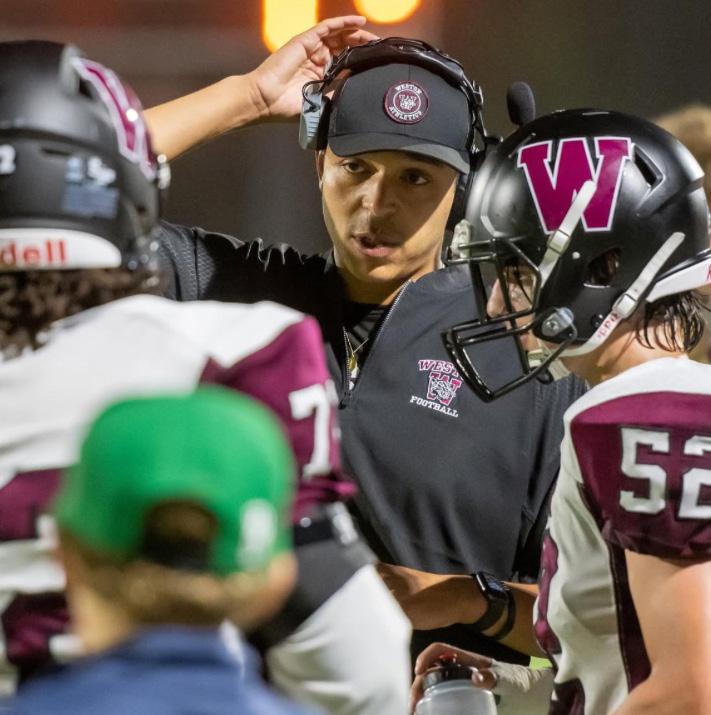
What unique aspects do you bring to being a coach?
"I spent the last six years working at a therapeutic day school. One big thing I've learned is that students and people in general do well when they can. As a coach, you see people having a hard time sometimes, and you just want it to work better."
"But no one's doing poorly because they can't do well. "ey're doing it because they don't have the skills, whether it's mentally, physically, emotionally, to get the job done."
What is something that you hope to teach your team?
"I want kids to be driven and accountable. I think a big thing for kids is to be accountable … To be accountable for whether it's my day-to-day communication about where I can be, when I'm going to be at practice, or if I have to be at work, or if I'm late because I have to make up a test — but then also the bigger things, like, I made a mistake. I stepped over a line. How does that student or coach take accountability for that mistake?"
that made Madden undoubtedly my favorite sports video game of all time.
My personal favorites:
Madden: Although recent editions of Madden have proven that EA Sports has become more focused on pro t than producing quality games, no video game compares to Madden at its best.
"e advanced mechanics and visuals combine for some of the best gameplay I’ve ever seen, and the soundtracks (especially in earlier games) are some of the best in any video game — ever. You also can’t forget its iconic game modes, such as Franchise, Superstar K.O. and my personal favorite, Madden Ultimate Team.
Being able to build my own team out of past and current players was a revolutionary idea for 11-year-old me. Using cards of old legends such as Eric Dickerson and newer players such as Lamar Jackson allowed me to create teams that would beat my friends every time we played.
Starting with Madden 06 on my dad’s Xbox, where players looked like stick gures, to eventually playing Madden 20, with players looking almost identical to the ones on TV, the game shaped my childhood and fueled my love for football.
1. Madden 20
2. Madden 21
3. Madden 23
Wii Sports: I would be remiss if I did not mention one of the

Playing against my friends, using some of my favorite football players in the league and being able to control every aspect of a sport that I had loved my whole life, created an experience
of the greatest sports video games we have ever seen. Wii Sports was a staple of many childhoods. From bowling to tennis to boxing, all you had to do was move your arms for a chance at glory.
One of the greatest features of Wii Sports was the characters. "e Mii characters allowed users to pick from 60 di$erent people, all with a robotic look that

pioneers of great sports video games: Wii Sports.
Being able to launch into a game and feel like a real player, where your movements in real life control your movements in the game, was a revolutionary idea.
Its simple controls and accessible, stylistic gameplay allowed Wii Sports to become one
gives former players a deep nostalgia for the game.
My personal favorites:
1. Baseball 2. Tennis 3. Bowling
NBA 2K: It makes sense why NBA 2K is regarded as one of the greatest sports video games. Just like Madden, its updating rosters, stellar visuals and realistic gameplay have allowed the game to stand the test of time. NBA 2K also consists of various modes, such as MyCareer, in which you can create your own NBA player with adjustable attributes.
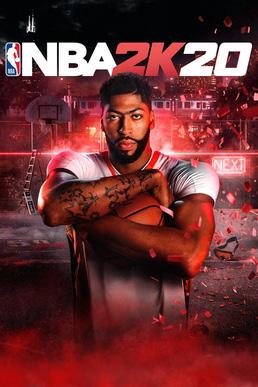
Obviously, you can’t talk about Wii Sports without mentioning the theme song. Possibly one of the greatest theme songs ever created, the simple intro to the game got me excited to play every time I turned on my Wii as a kid.
MyLeague is a mode in which you can act as a general manager and make decisions on rosters, trades and drafting. All of these help NBA 2K rise above other video games, as it provides people a chance to control players and teams they have grown up admiring and watching. "e ingenuity of 2K is that it combines advanced controls for the serious players with simpler controls for casual players. It is one of those games you do not even have to be a fan of basketball to enjoy.
While my friends knew how to set screens and hit reverse dunks, I only knew how to pass and shoot, and somehow, we were all able to have fun playing the same game, despite playing it in vastly di$erent ways.
My personal favorites:
1. 2K 20
2. 2K 19
3. 2K 22
While sports bring joy and excitement to many people year-round, the unfortunate reality of injuries is often overlooked, especially when it comes to player safety.
Heartbreaking news shook the sports world in Boston this year when Boston Celtics superstar Jayson Tatum fell to the oor clutching his achilles during the Eastern Conference Semi nals against the New York Knicks.
Dealing with injuries to other star players, the second-seed Celtics had gotten o$ to a slow start in the series, but Tatum’s injury, later revealed to be an achilles tear, was the nal nail in the co n.
Celtics fans entered the 2025 playo$s with palpable excitement after winning the NBA title the prior season. "is excitement quickly vanished, as Tatum’s injury not only helped knock the Celtics out of the playo$s, but also now clouds the upcoming season with uncertainty surrounding the team.
Tatum’s injury was not the only careeraltering injury on the biggest stage in basketball in the 2025 playo$s.
Indiana Pacers superstar Tyrese Haliburton took the league by storm, leading the fourth-seed Pacers to its rst NBA Finals appearance in 25 years.
His exceptional playmaking ability and late game heroics made him one of the most captivating players in the league during the Pacers’ run to the nals, which included thrilling comebacks and game-winning or game-tying shots in every series. "is run resulted in a Game 7 matchup against the Oklahoma City "under.
Not many words excite sports fans more than “Game 7,” but this excitement ruptured yet again when Haliburton went down with
an achilles injury 10 minutes into the game. While most Game 7s bring iconic moments and jaw-dropping plays, this one quickly left many fans with a bitter taste in their mouth.
Haliburton’s injury not only ruined one of the most important games in recent NBA history, but it will also sideline him for the entire 2025-26 season.
"ese injuries not only hurt players’
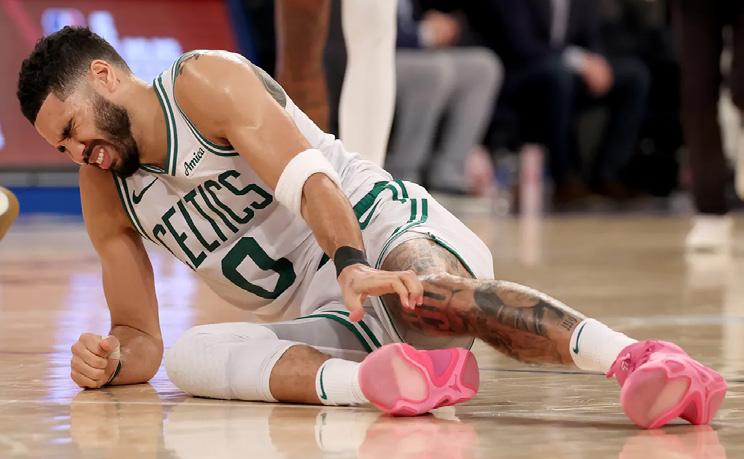
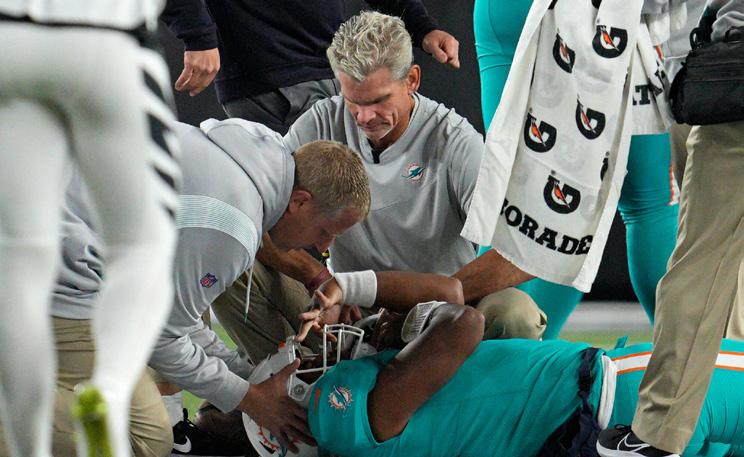
seasons and teams’ playo$ runs, but can even destroy a player’s entire career — and in some cases, be life-threatening.
After making a routine tackle against the Cincinnati Bengals in January 2023, Bu$alo Bills safety Damar Hamlin collapsed on the eld mid-game and was soon driven o$ in an ambulance. He was taken to a hospital, where he spent two days in a coma.
Reports later revealed that Hamlin’s heart had stopped, sending him into cardiac arrest. "e game was suspended and later
canceled, as neither team wished to continue after witnessing such a horri c incident.
For days, the NFL community waited to hear the results of Hamlin’s condition. While he fully recovered, this injury was the closest that the NFL had seen to a player dying on the eld in decades, and it sparked a league-wide debate surrounding safety regulations.
While Hamlin’s injury was one of the
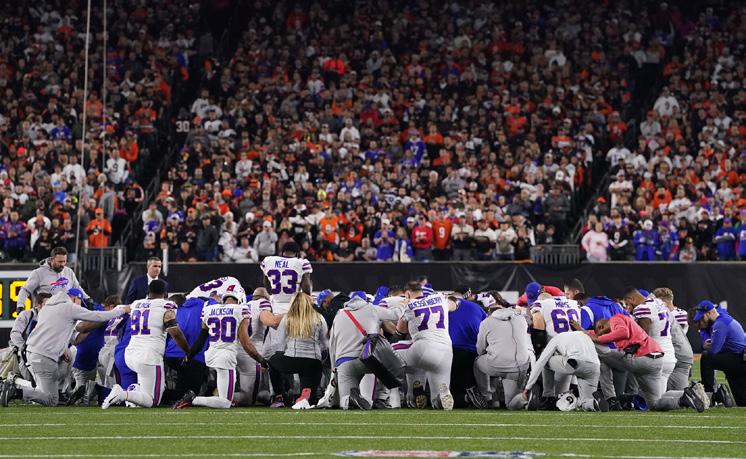
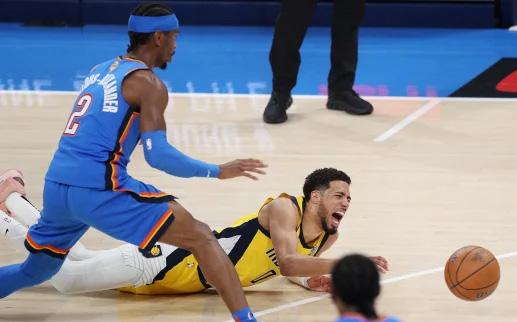
scariest in NFL history, it was not the only life-threatening injury to happen during the 2022-23 season.
"e discourse surrounding concussions in football has risen in recent years, as more cases of the neurodegenerative disease Chronic Traumatic Encephalopathy (CTE) have been con rmed.
CTE can lead to memory loss, mood swings and impaired judgment and has derailed the careers of many NFL players such as Junior Seau, Antonio Brown and, infamously, Aaron
Hernandez, who was convicted of rst degree murder in 2013 (a case that many speculate was connected to his severe case of CTE).
"e most recent example of a life threatening concussion occurred in the same season as Hamlin’s injury.
During a game against the Bengals, Miami Dolphins quarterback Tua Tagovailoa took a sack, slamming his head on the ground. "is appeared to be a normal hit at rst, but fans soon realized the severity of the situation as Tagovailoa stayed on the ground, his ngers seemingly paralyzed.
Tagovailoa was later con rmed to have a concussion, leading to an investigation into the doctor that had allowed him to play after taking a similar hit the week prior. "is concern heightened as Tagovailoa su$ered yet another concussion just a few months later, sidelining him for the remainder of the season.
Two concussions in such a short time period is already cause for major concern, but Tagovailoa took yet another hit to the head in September of 2024, giving him his third concussion in three years.
"is injury sparked a dialogue in the NFL, with many questioning whether Tagovailoa should consider retirement. "e injury also heightened discussions surrounding CTE and safety regulations, with many questioning the e$ectiveness of the NFL’s concussion protocol.
Injuries have always been an unfortunate setback in the sports world, a recent rise in research as to how detrimental every injury can be to a player’s life has ramped up discourse regarding player safety and regulations.
While many injuries are just an act of bad luck, many can be prevented by more regulations regarding player safety, a step that we should hope to see be taken soon.
Get your brain back in shape for the school year wtih a Roar puzzler





ACROSS DOWN
4) New boys basketball coach who previously coached at Bedford (pg. 21)
6) What do you call two friends who love math?
8) New York mayoral candidate and democratic socialist Zohran (pg. 9)
9) _______ male, a totebag-carrying, Clairo-listening, feminist-literature-loving archetype.
12) Summer internship program for students (pg. 12)
14) What it takes to raise a child, or the name of the bank that sponsors the Hyde Center summer concert series (pg. 15)
16) Scary-looking charm often found dangling from keychains.
17) Targets of a new bill recently passed in the Massachusetts State Senate



ANSWERS:
1) Auburndale ice cream joint; home of the Graham Central Station !avor (pg. 8) 2) Main character in ""e Summer I Turned Pretty"; informal term for one's stom ach.
3) Popular bright green beverage.
5) Beloved elementrary school being rebuilt after more than 70 years (pg. 4)
7) Program that put up students murals around Newton; what a diamond does brightly in a Rihanna song (pg. 18)
8) "Your English teacher and your gym teaher are getting ______," per a viral Instagram caption.
10) Tendon torn by Tatum; ancient Greek warrior (pg. 22)
11) Group whose concert kiss cam exposed a high-pro le a air.
13) Color of the performers who ended a 30-year residency in Boston this year (pg. 2)
15) Nephew of two famous Mannings who plays for the University of Texas

Aquarius (Jan. 20-Feb. 18):
"e apples might not be ripe yet, but you can still pick the donuts! (It’s a metaphor).
Pisces (Feb. 19-March 20): We hate to break it to you, but your alarm clock is not just a suggestion…
Aries (March 21-April 19):
Embrace your school spirit this fall… the lion costume is one size ts all!
Taurus (April 20-May 20): Your summer sleep schedule will catch up to you. And it won’t be pretty.
Gemini (May 21- June 20): You will make history… but you have to *pass* history rst, ok?
Cancer (June 21- July 22): You’re Starbucks’ best customer! We know, those pumpkin spice lattes are hard to resist.
Leo (July 23- Aug. 22):
Even though Fantasy Football is looking rough right now, keep the faith in Jared Go
Virgo (Aug. 23- Sept. 22): "e cooler the school supplies, the better the school year. It’s not too late for a Staples run.
Libra (Sept. 23- Oct. 22):
Yes, it’s too early for Halloween decorations. Enjoy the rest of summer while you can.
Scorpio (Oct. 23- Nov. 21):
All those clubs you signed up for don’t count if you never come to a meeting.
Sagittarius (Nov. 22- Dec. 21):
NSHS Bad Parking is in your future. As the o ender or the photographer? Up to you.
Capricorn (Dec. 22- Jan. 19):
You’ll make a new friend! Bonus points if they let you copy their math homework.
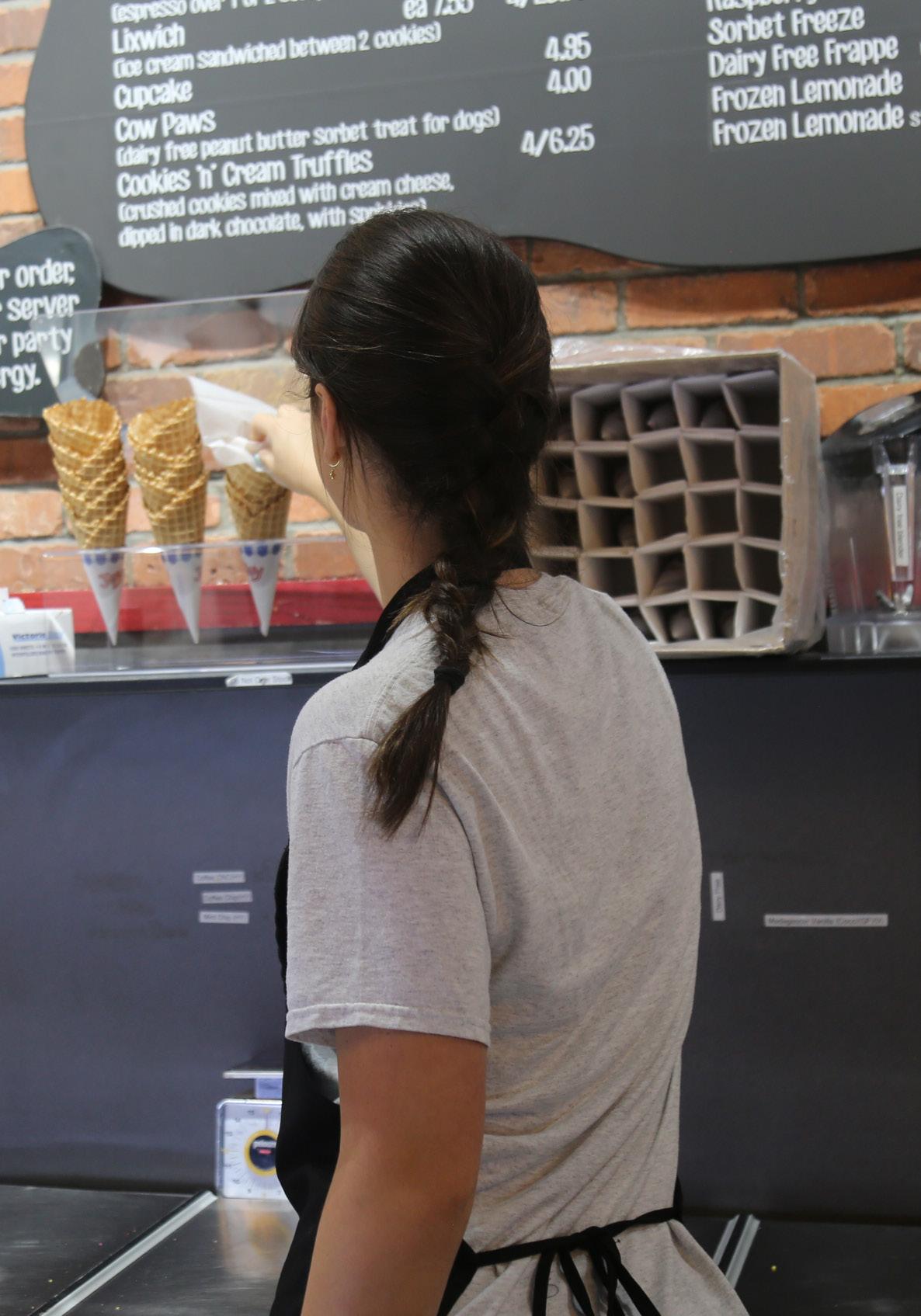
On the cover...
B y exploring a variety of summer jobs, South students develop critical life skills and discover new contributions to uplift their community.